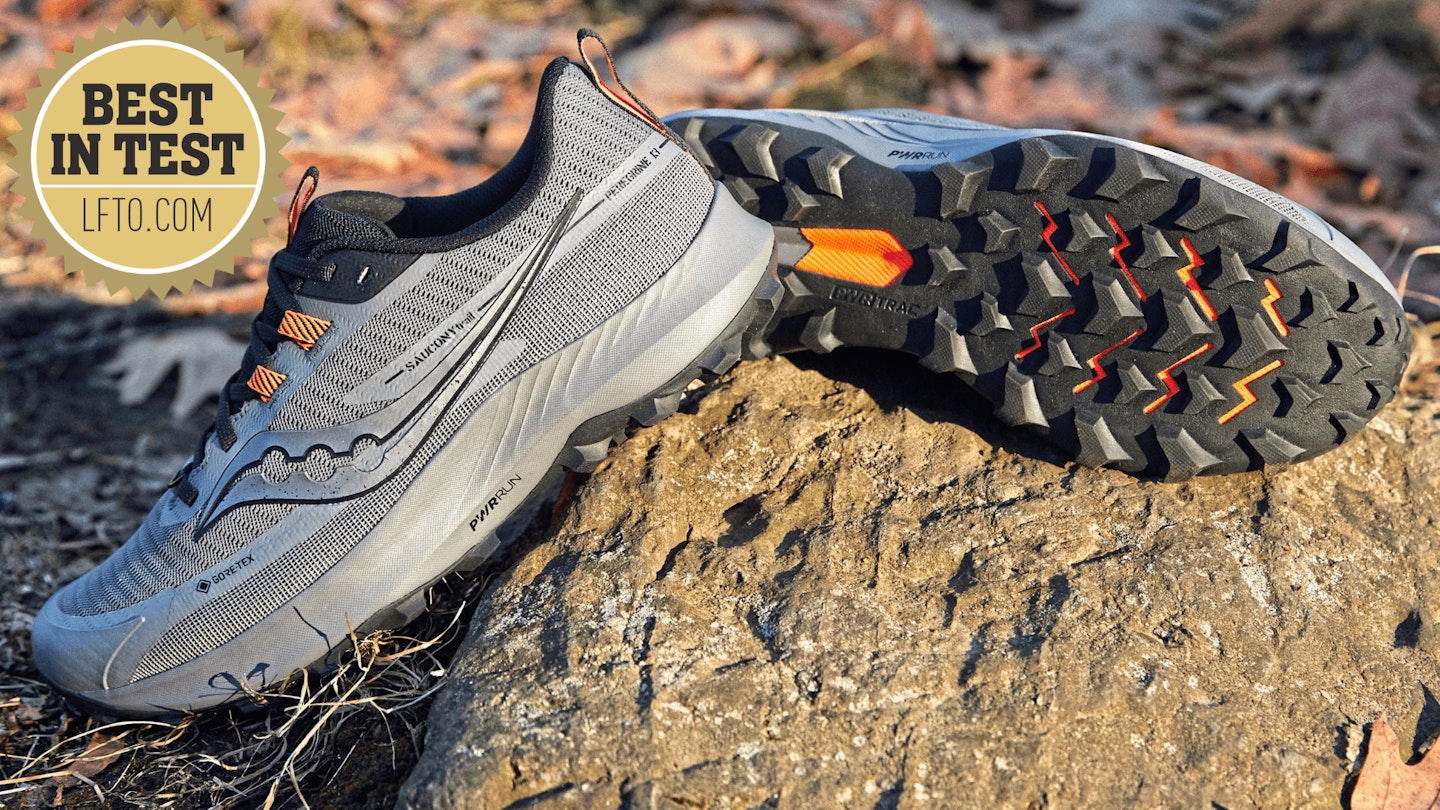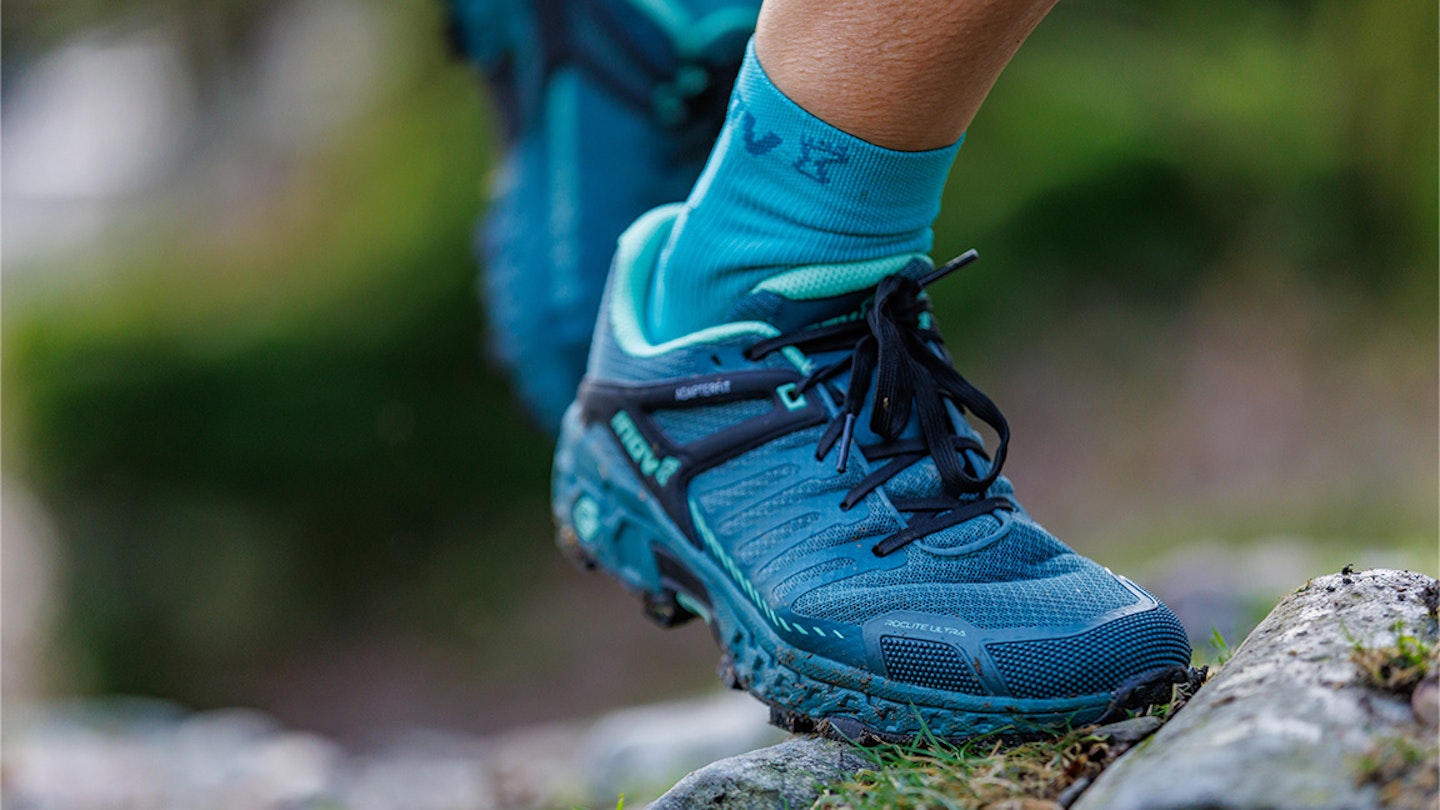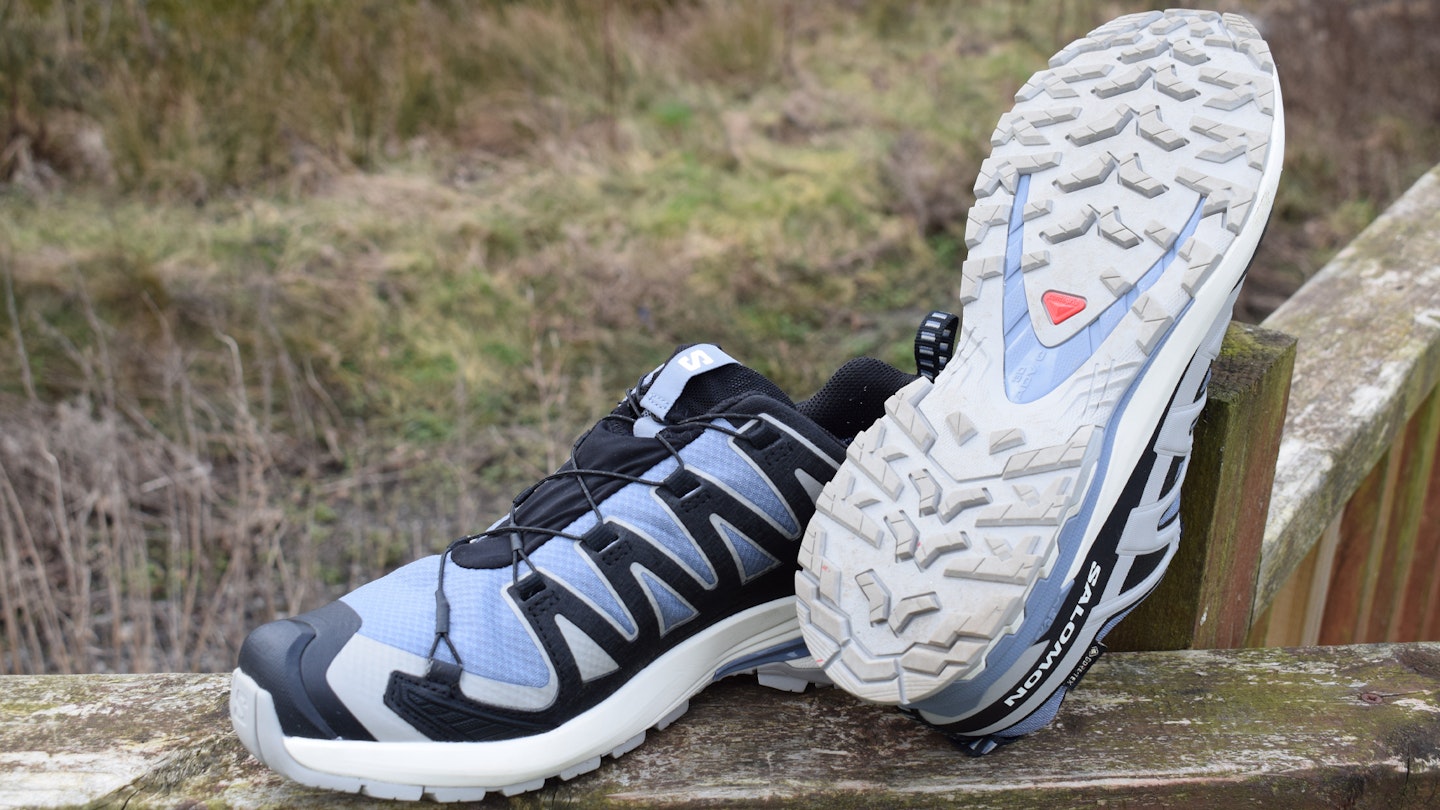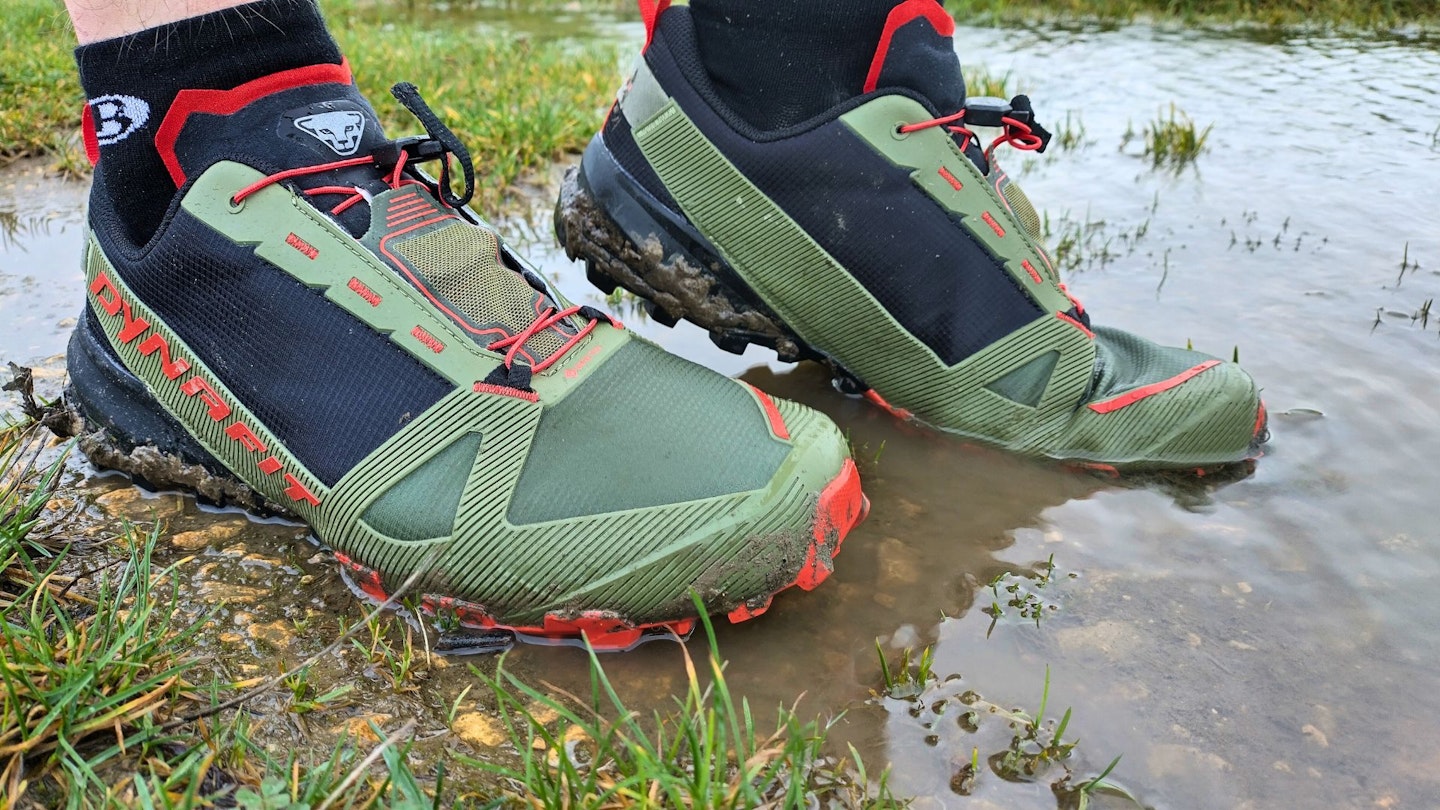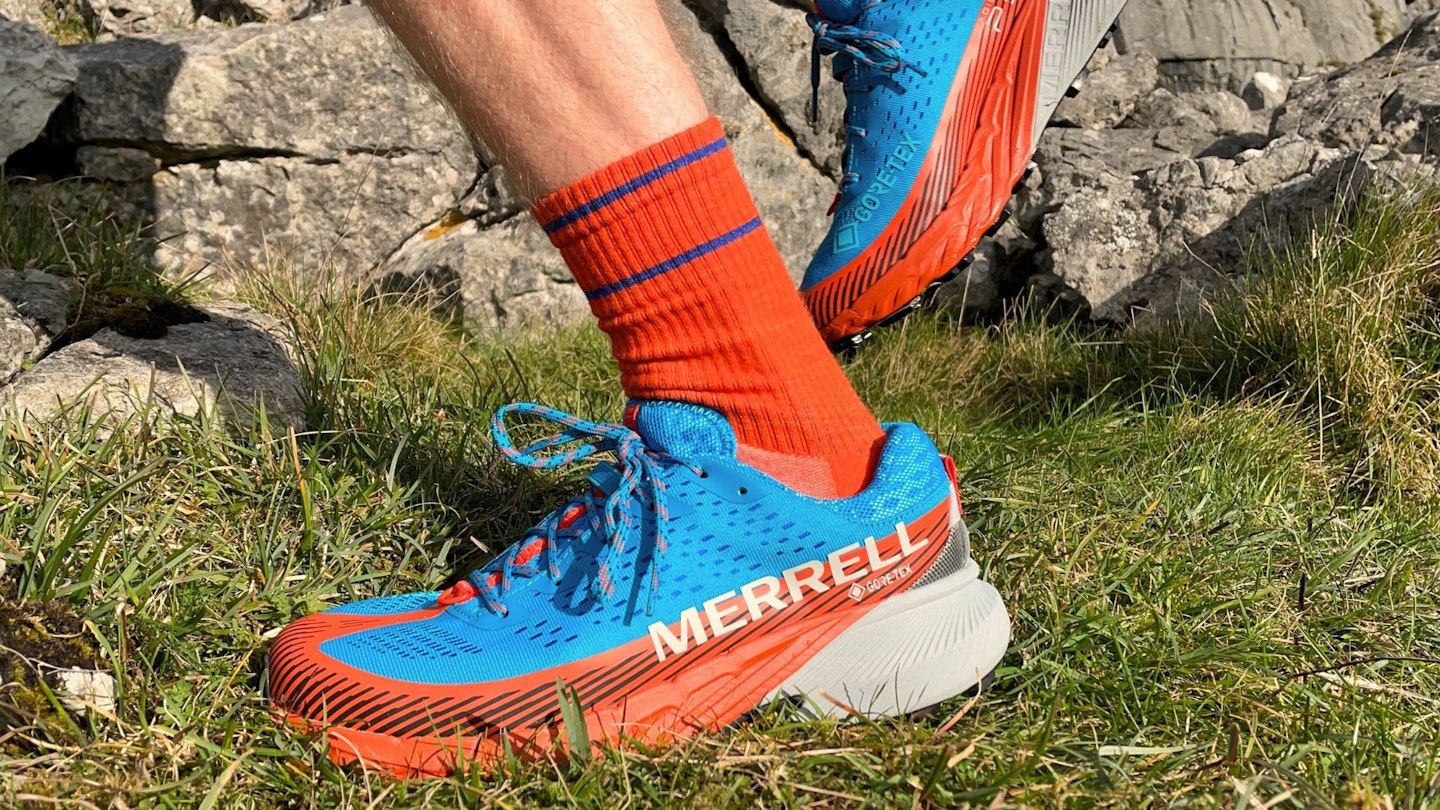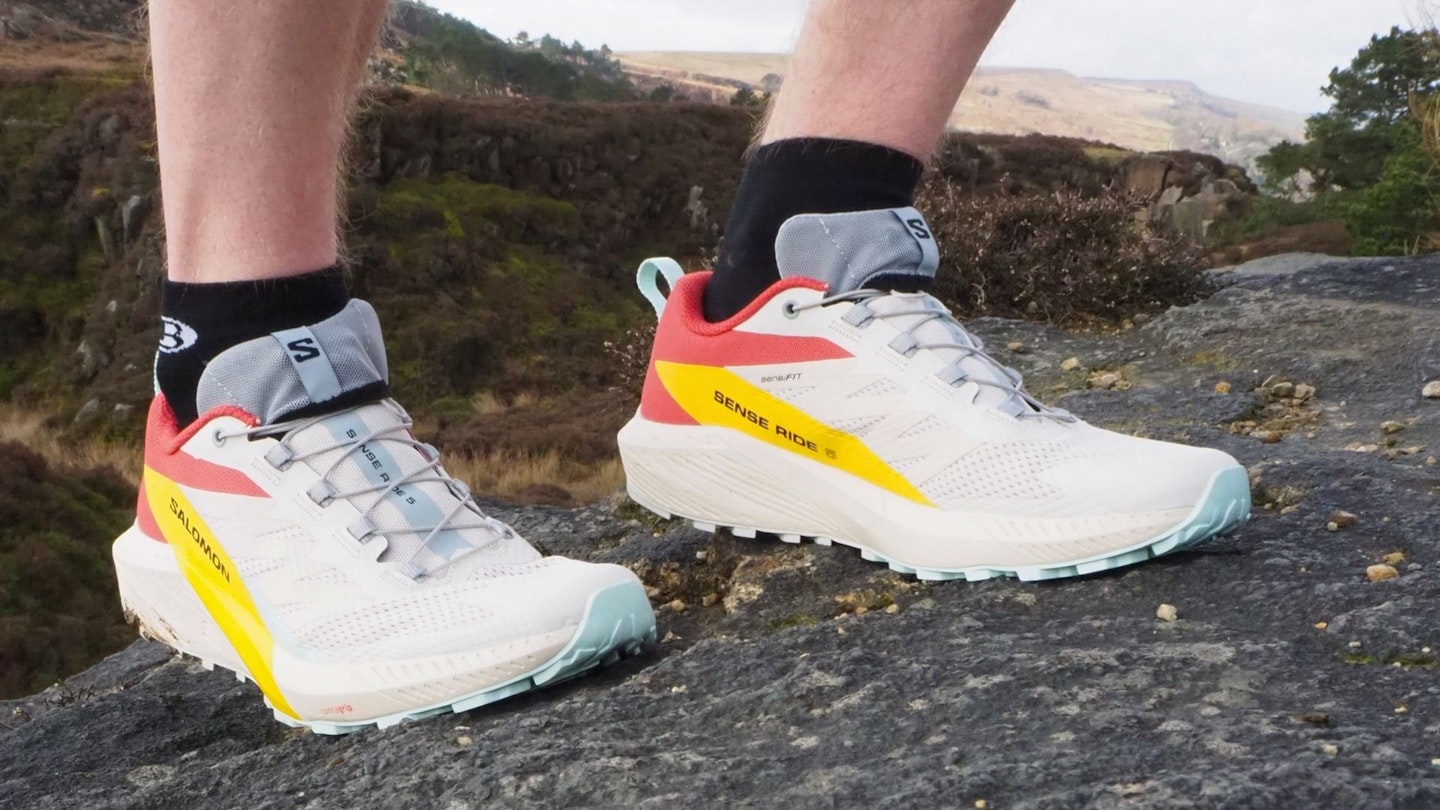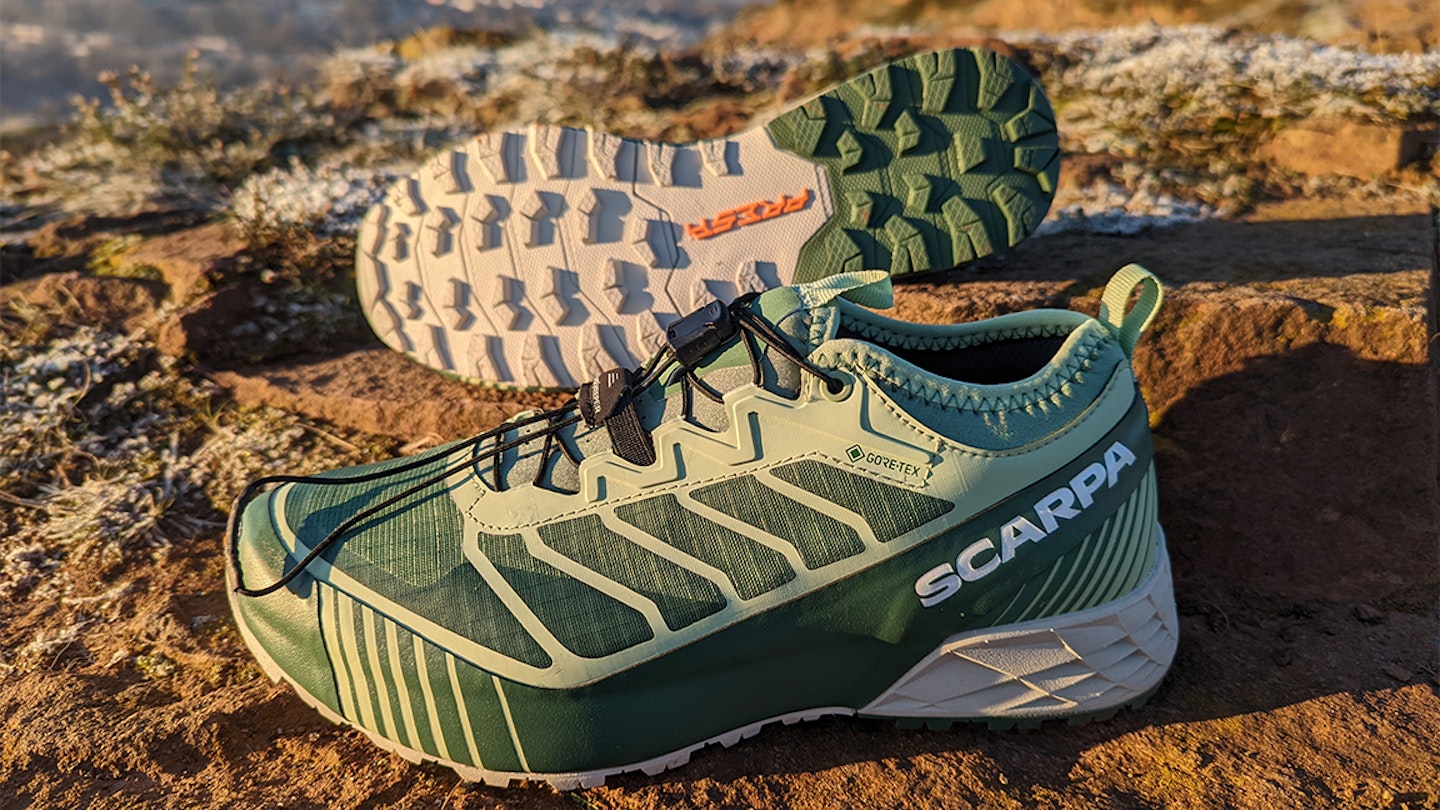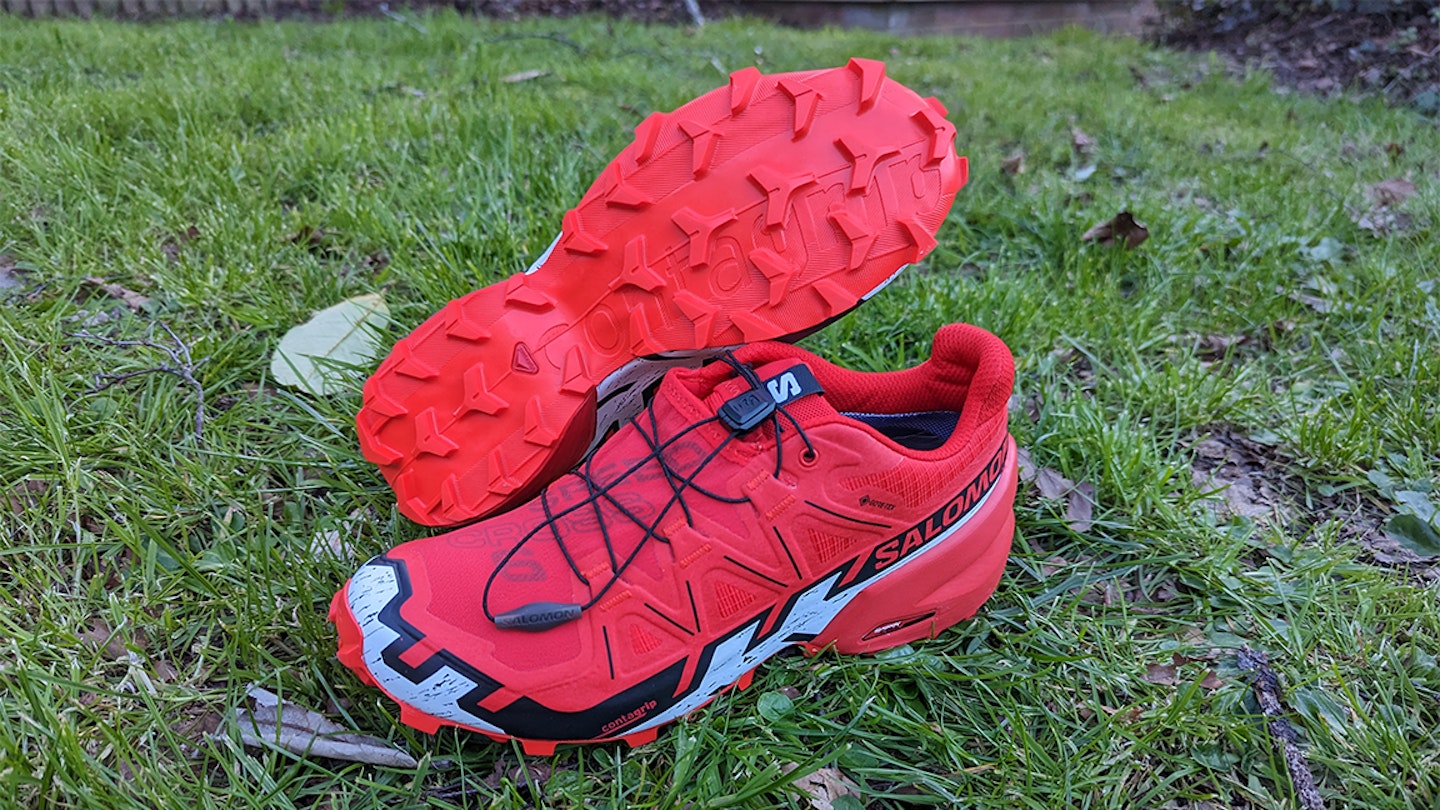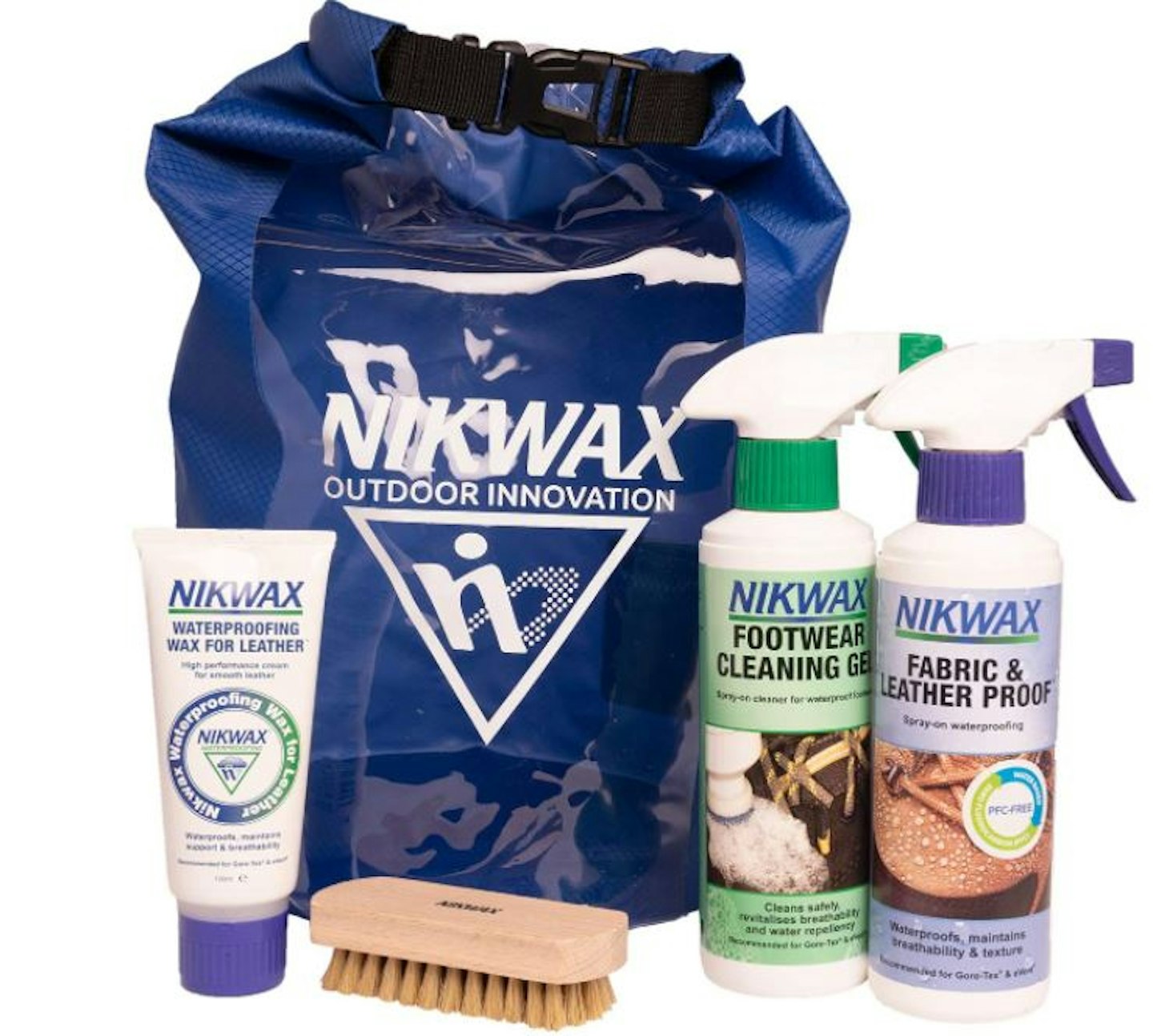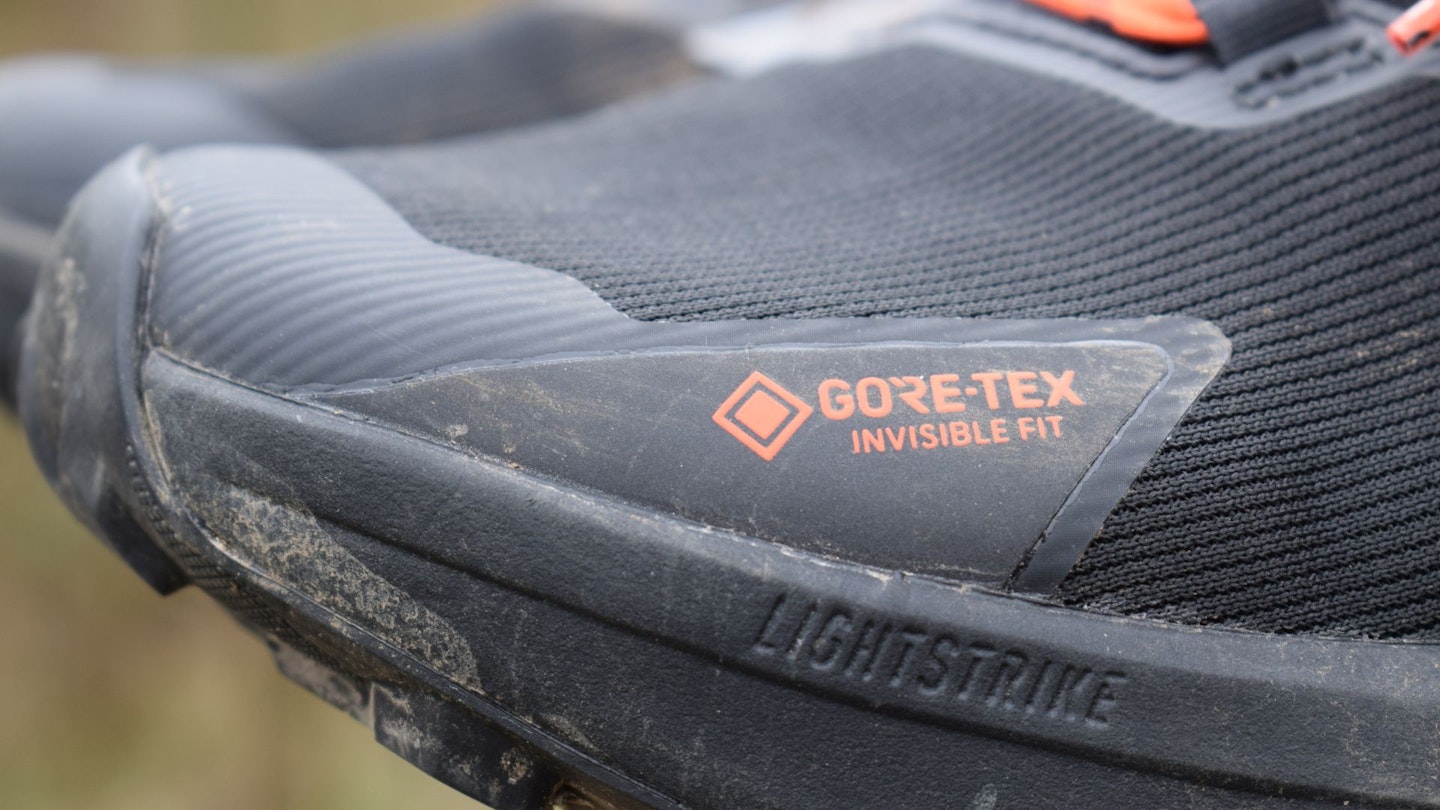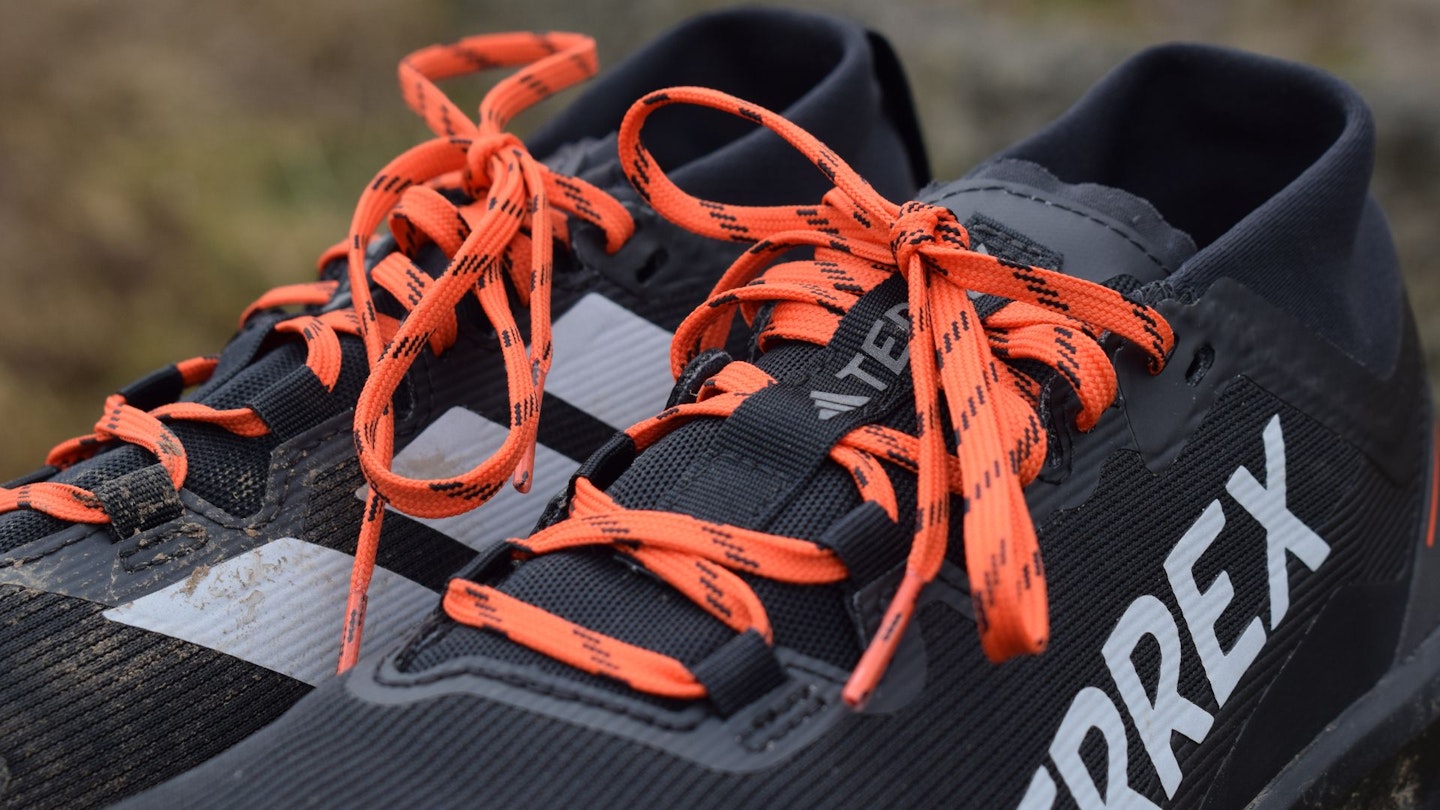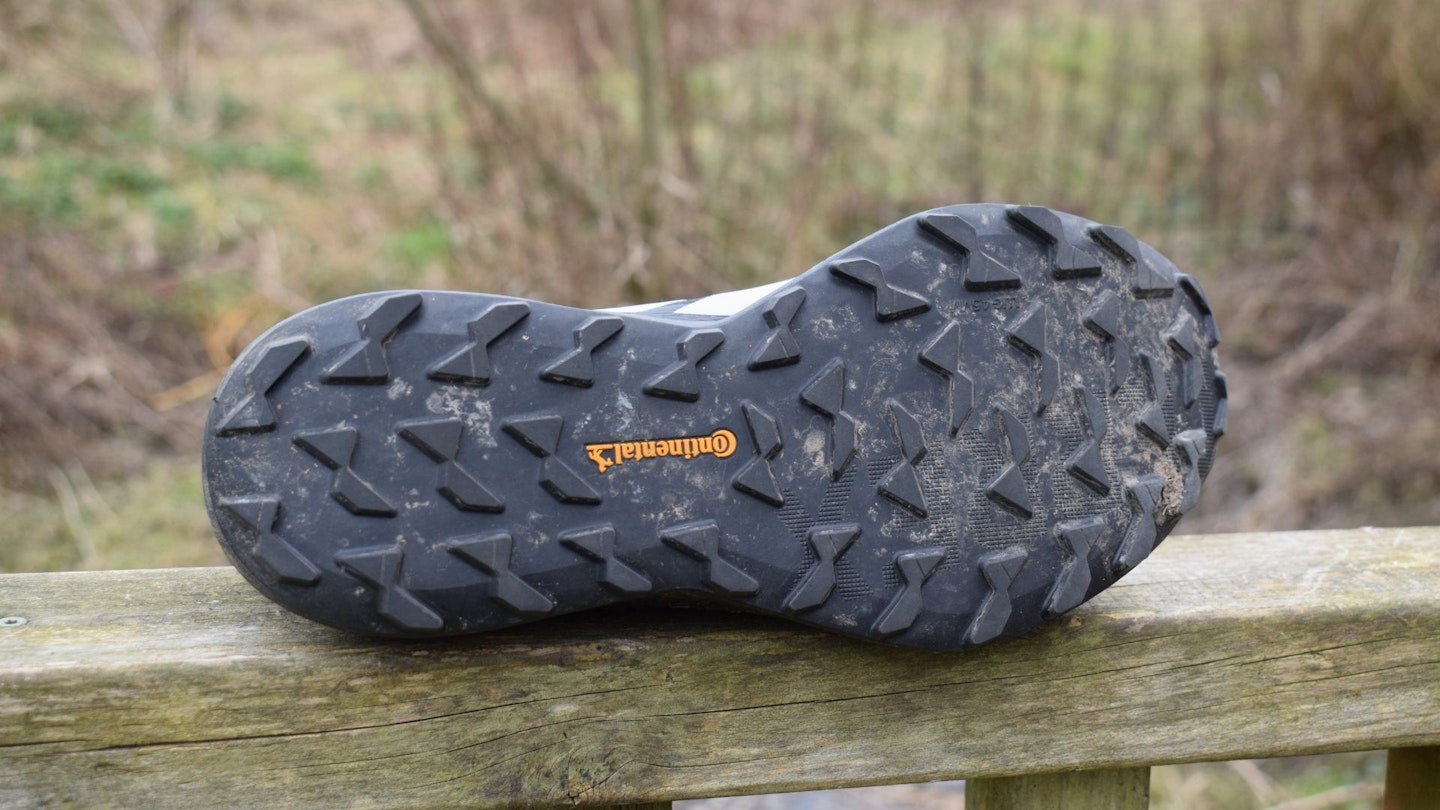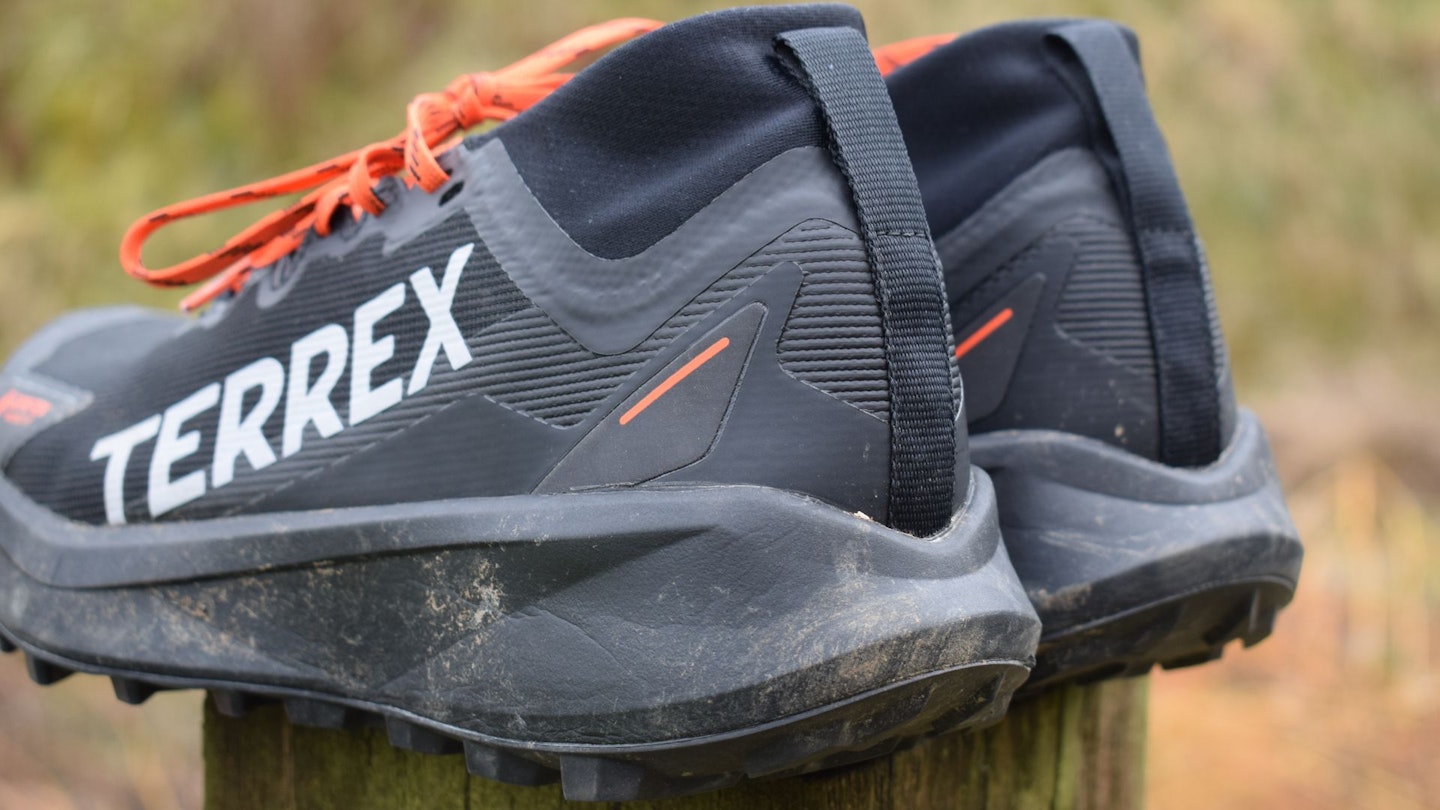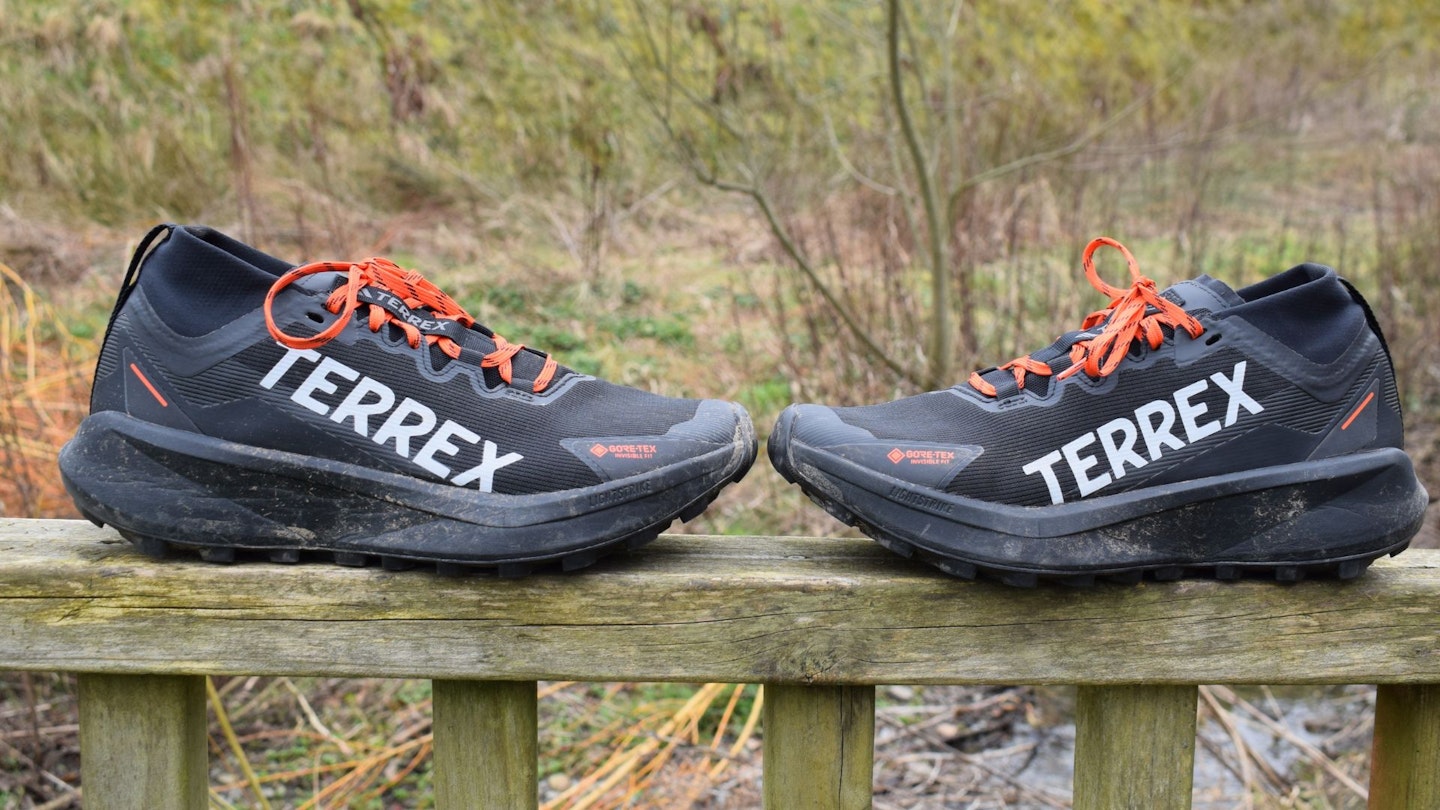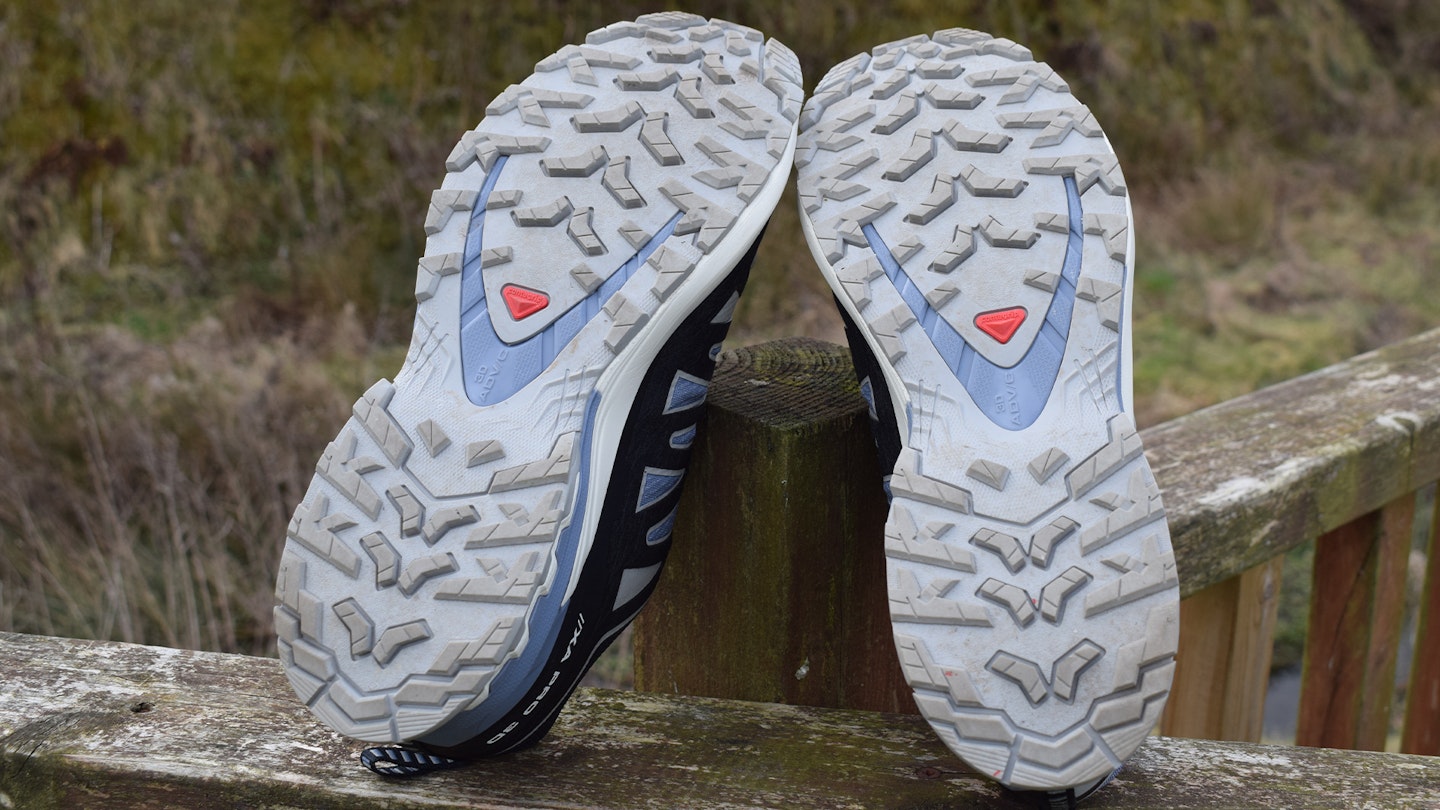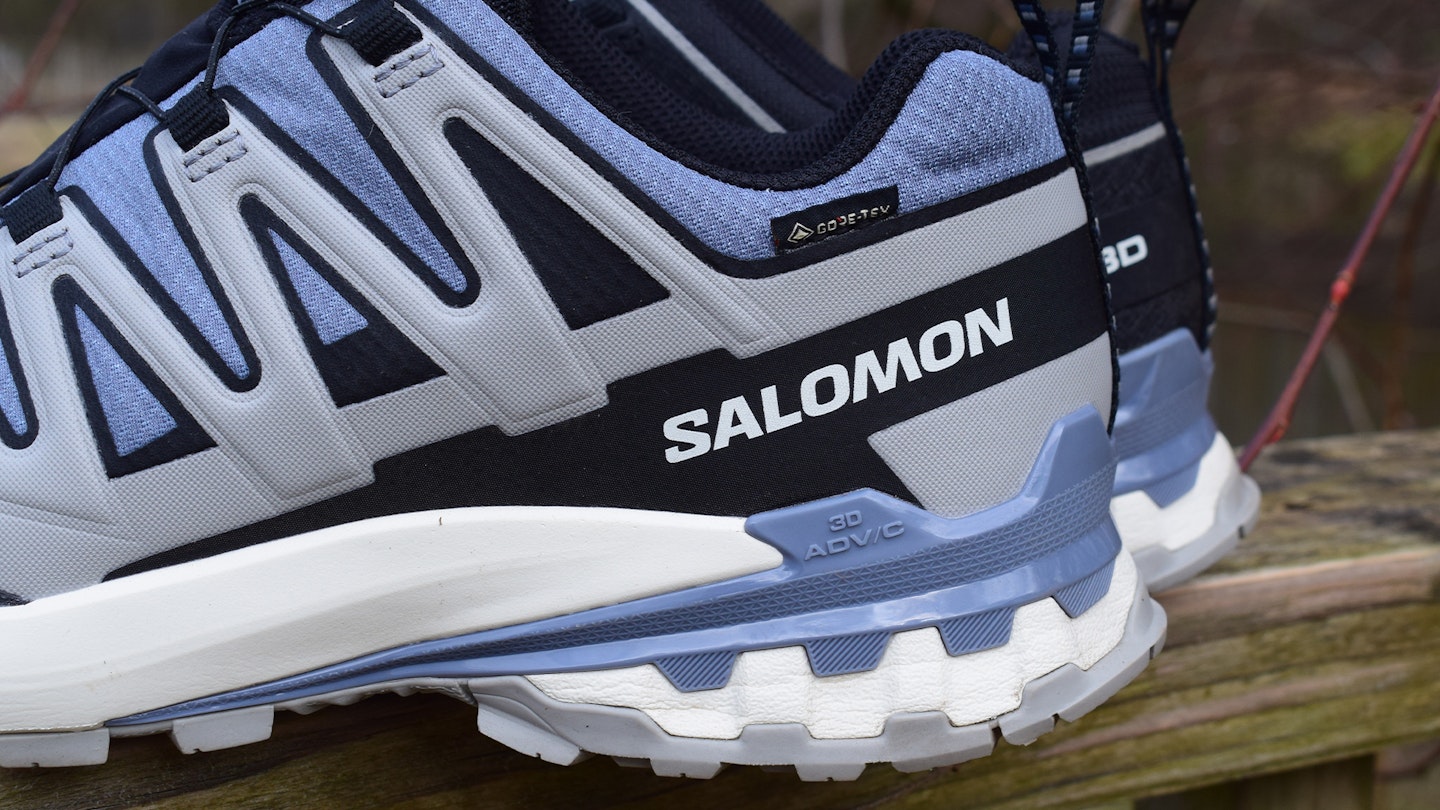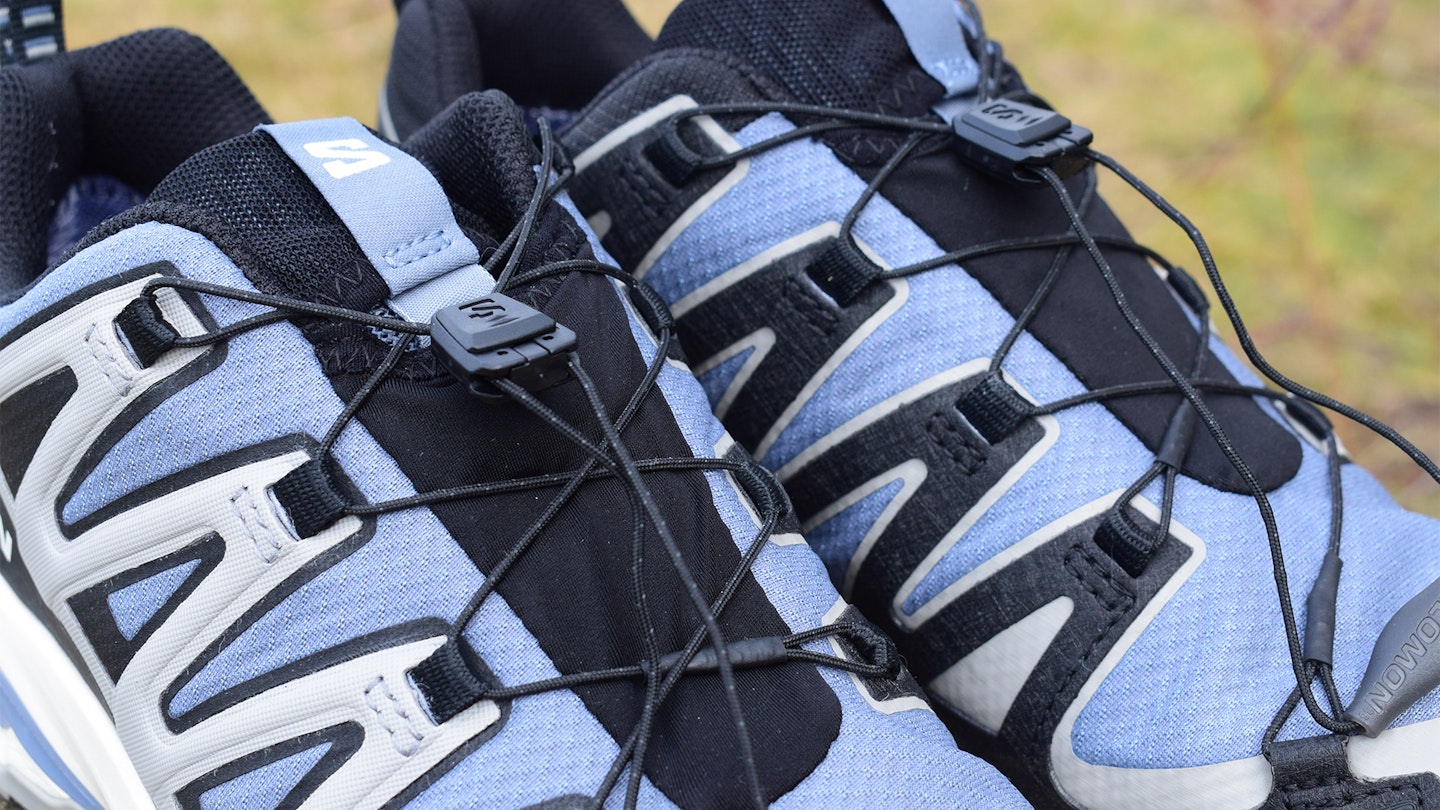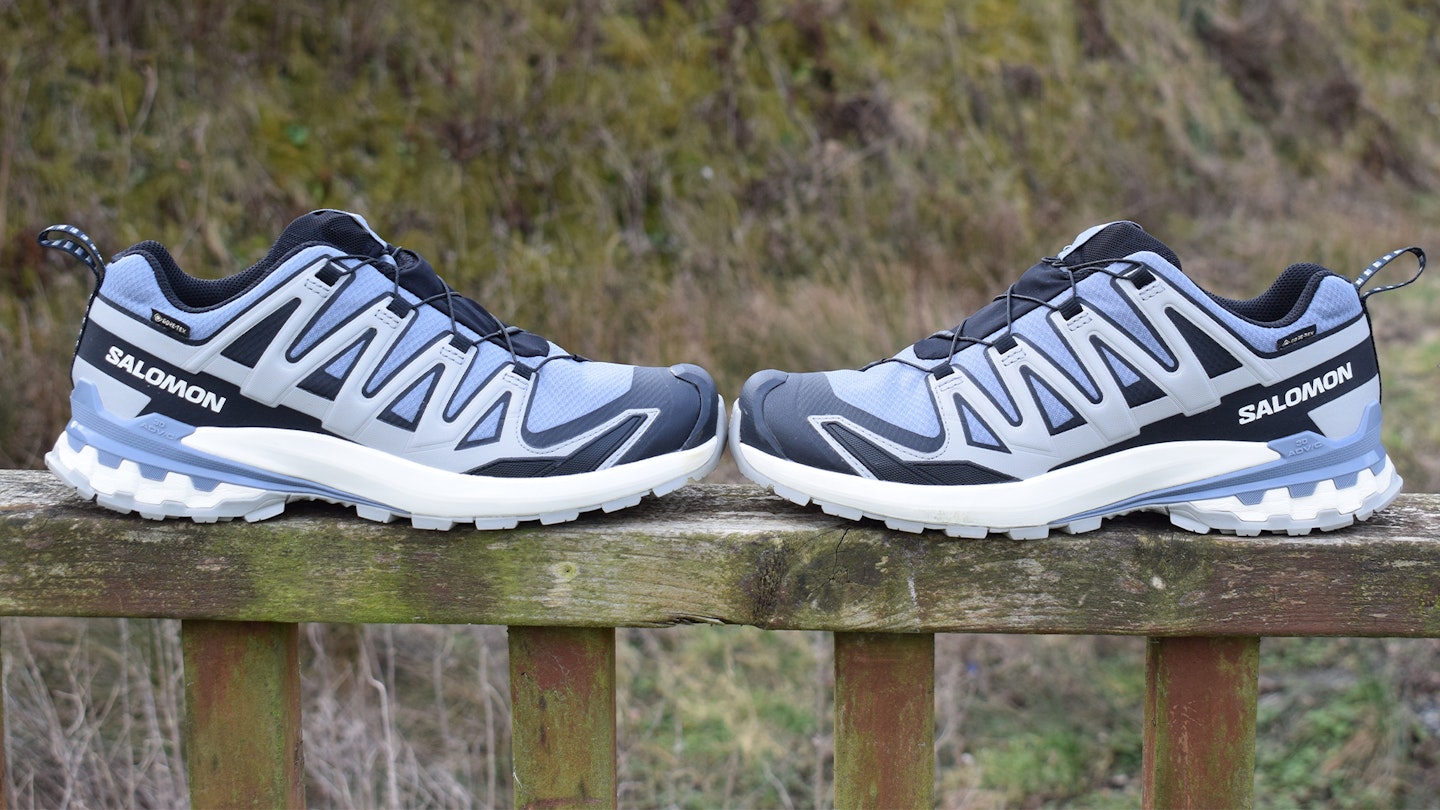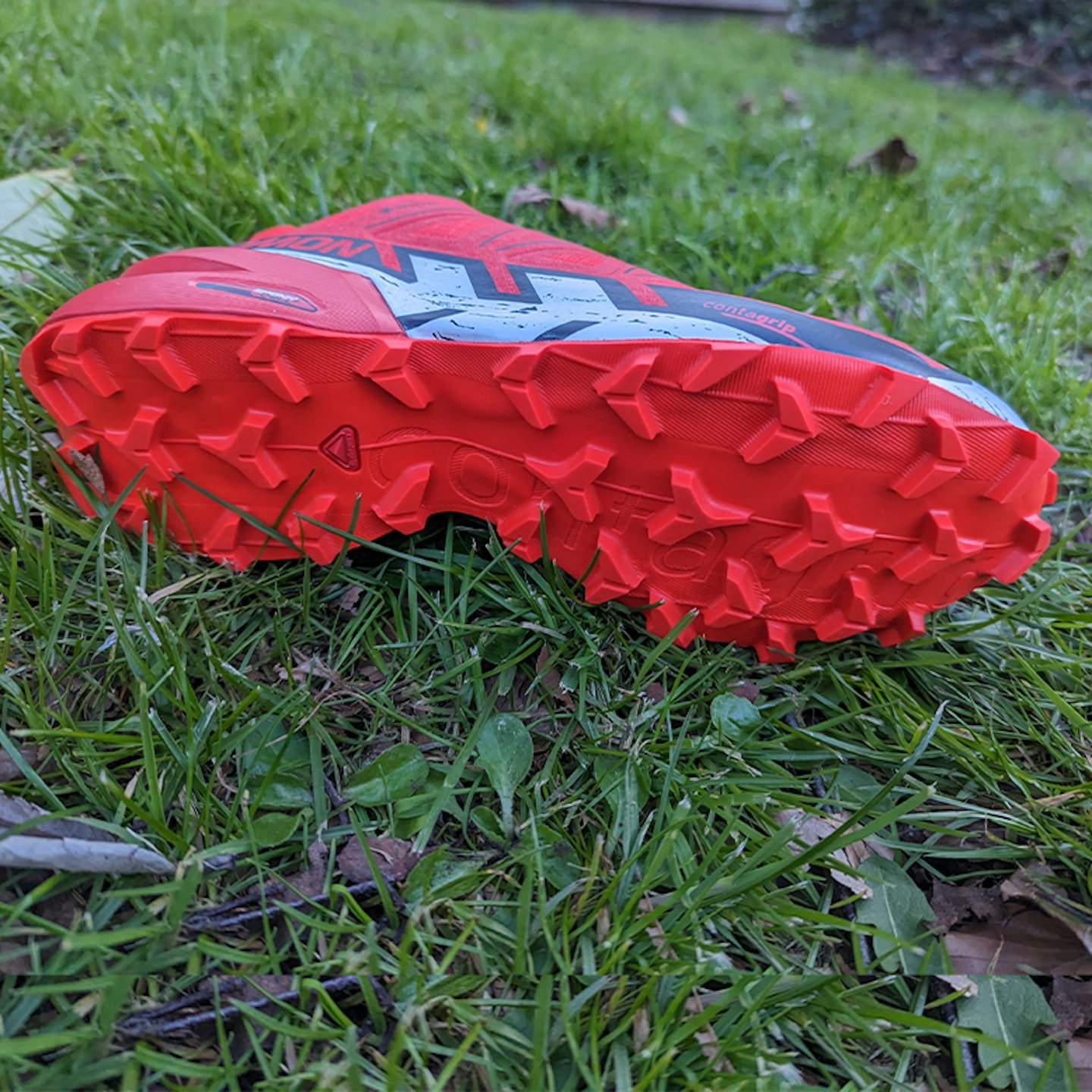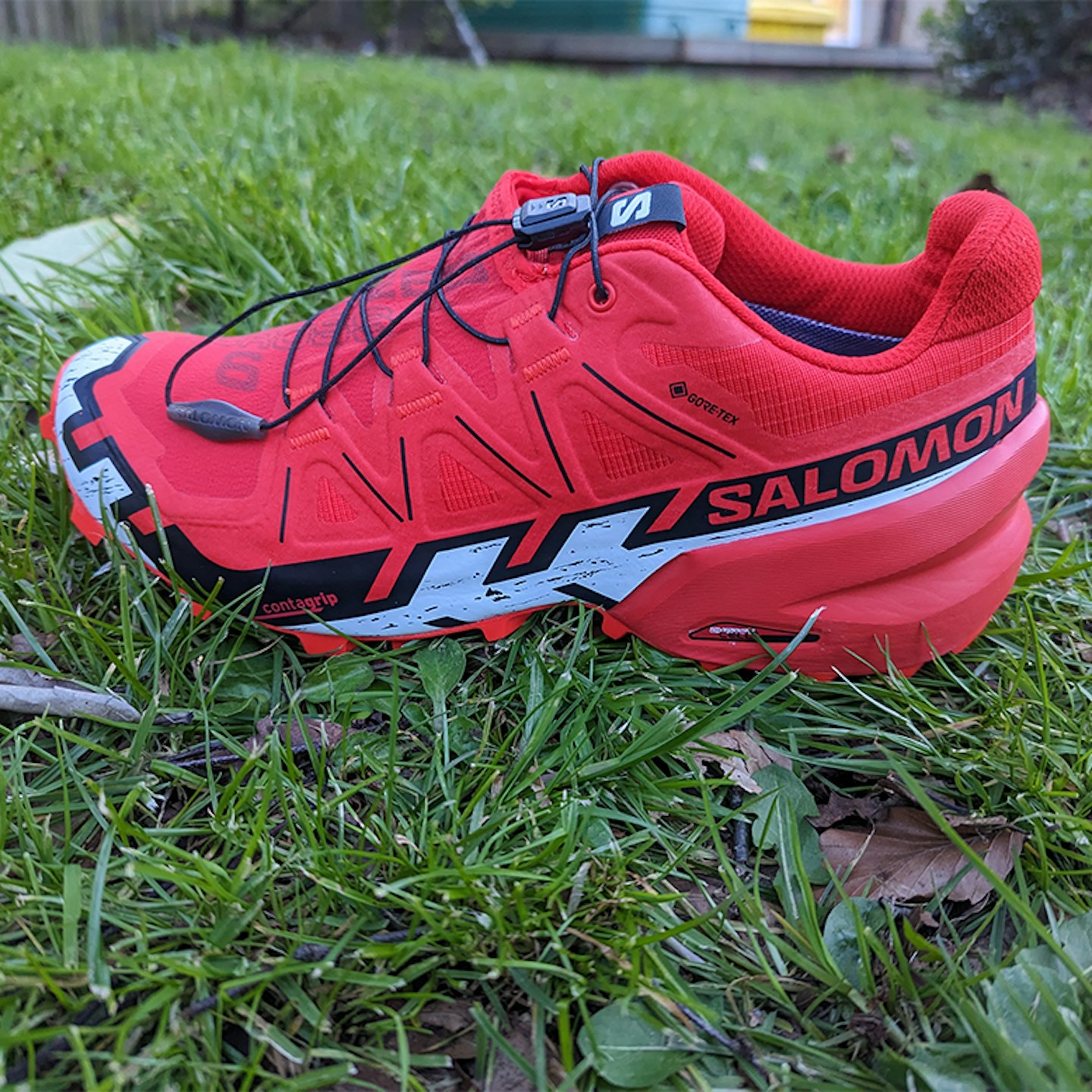Waterproof trail running shoes, by definition, need to be able to cope with damp and soggy conditions. Of course, those underfoot conditions will vary depending on your chosen route – a nice paved ParkRun in London is a little different to traversing Scafell Pike, for example. But nevertheless, wet muddy, and slippery trails are good fun.
The type of off-road terrain you frequent will heavily influence what type of waterproof trail running shoe you need. Waterproof trail shoes aren't a special niche of their own, but rather, they're just standard models of trail running shoes with a waterproof lining added.
This means that there are waterproof trail running shoes for all types of trail running, from park runs to skyrunning and ultras.
What are the best waterproof trail running shoes of 2025?
Best in test: Saucony Peregrine 14 GTX
Best value: Inov-8 Roclite G 315 GTX V2
Best for mud and soft ground: Dynafit Traverse GTX Running Shoe
Best Ultra running shoe: Merrell Agility Peak 5 GTX
Despite the bewildering array of choice, there are two things you want any pair of waterproof shoes to be: reliably waterproof and as breathable as possible. While they're never as breathable as non-waterproof shoes, some waterproof trail running shoes are better than others.
How we tested the best waterproof trail running shoes
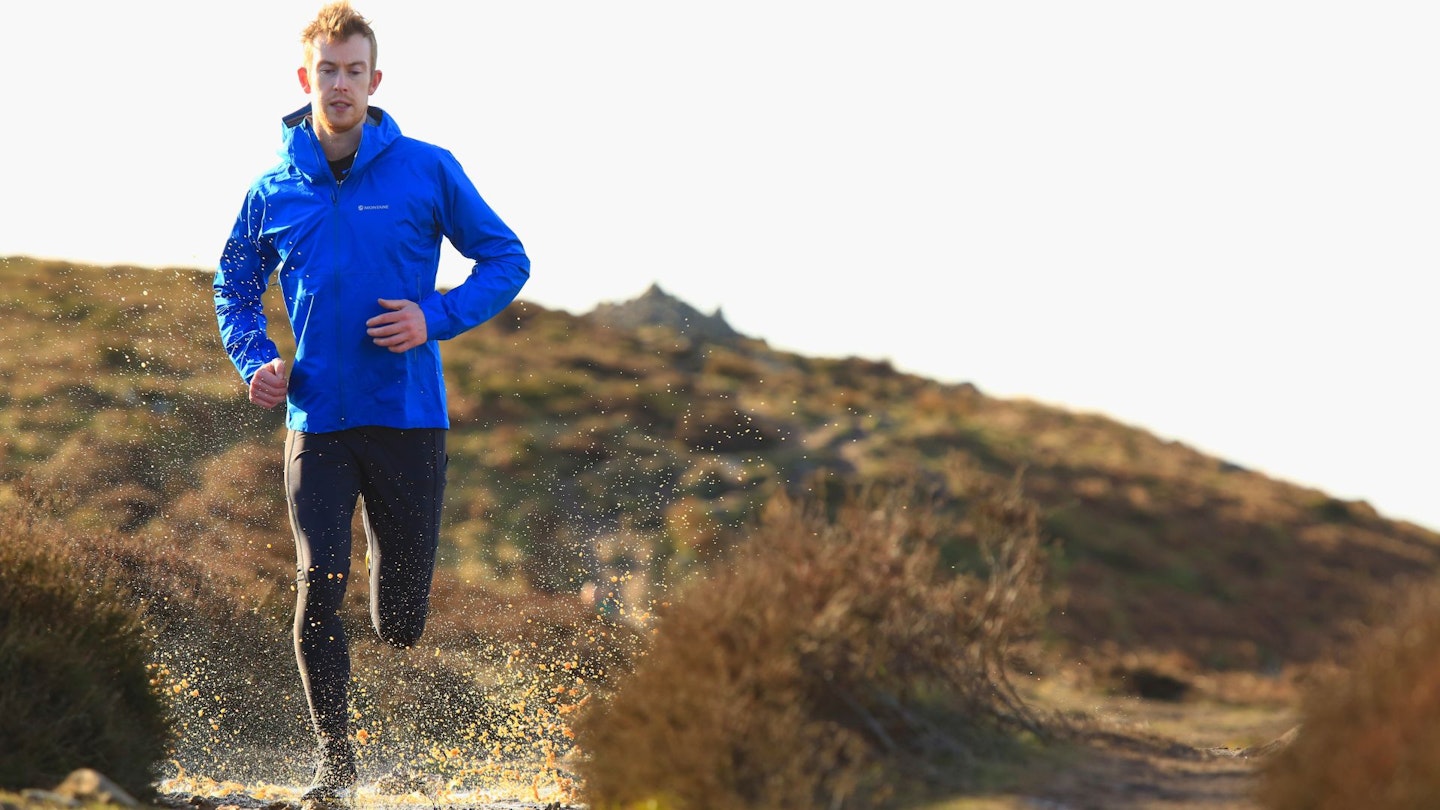
At LFTO, our gear testing is all about real-world performance, which means our dedicated team of testers had to stand in a lot of puddles to determine just how waterproof these shoes really are.
Most of the waterproof trail running shoes in this roundup were tested by Chris Williams, LFTO's senior writer who has been with us since 2021 and has several years of journalistic and outdoor industry experience. Chris is just a short drive from the ever-puddle-ridden North Yorkshire Moors, so he had an easy time finding the best proving ground for these shoes.
Click here for more info on how we test gear at LFTO.
Editor's Note: This article was last updated Friday March 21st, when we added both the Adidas Terrex Agravic GTX and the Salomon XA Pro 3D V9 GTX. These additions were tested by our fearless ultra runner James Forrest who is based in the Lake District – an ideal spot to give waterproof trail running shoes a proper thrashing.
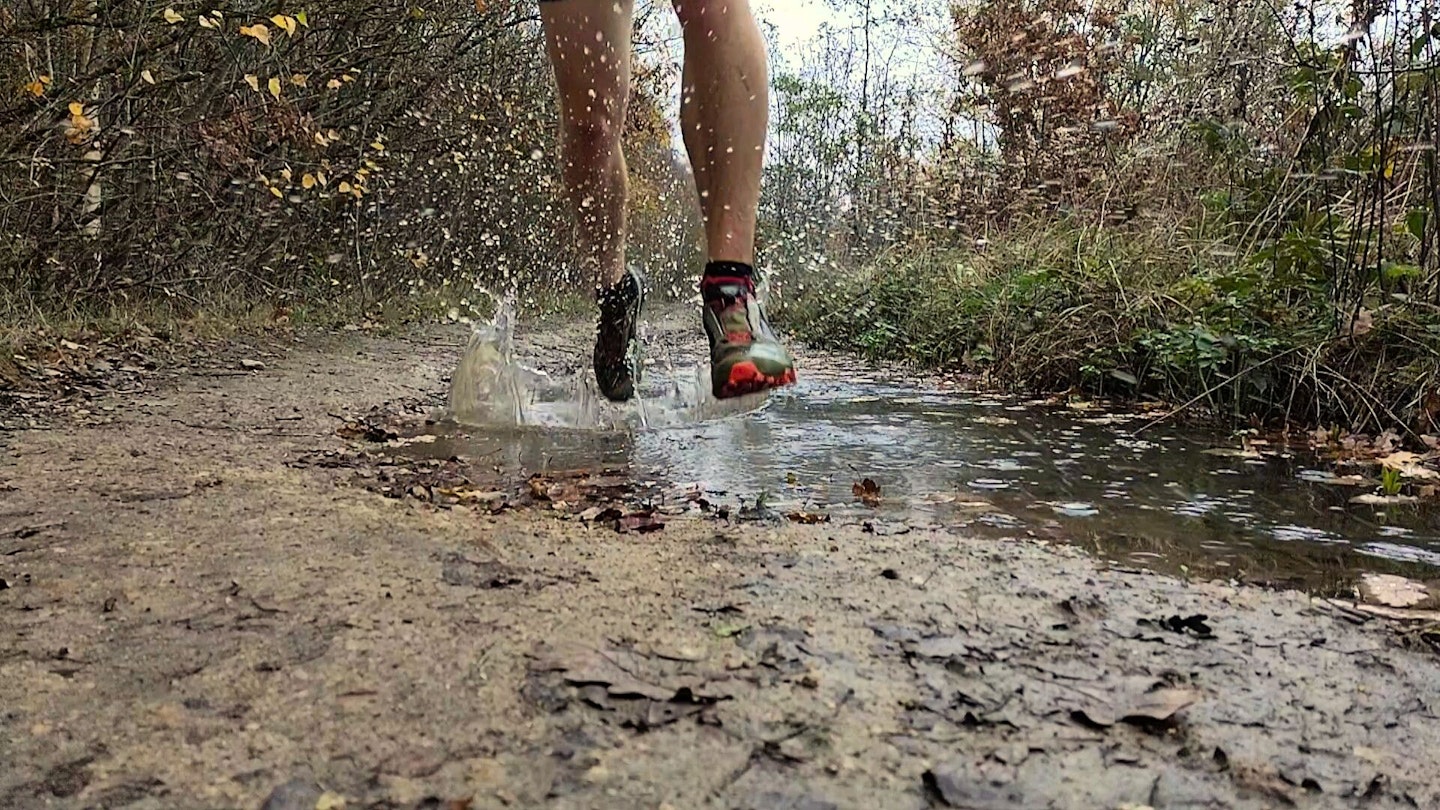
Get discounts from Run 1000 Miles!
A lot of the shoes we recommend here are available, usually at a great price, on Sportsshoes. So remember, if anything catches your eye, you can save 15% on trail running gear by signing up to our Run 1000 Miles Challenge. Get your bespoke discount code here and enjoy the savings at Sportsshoes.com!
Best waterproof trail running shoes reviewed
Now in its 14th iteration, the Saucony Peregrine has been honed and refined over many years. And it shows that it’s not only been able to keep up with the times, but fight its way to a podium position, in our opinion.
We like the Saucony Peregrine 14 so much because it’s smart simplicity. It’s not overengineered or overcomplicated – it sticks to a remit and delivers on it.
At well under 300g, it’s one of the lightest waterproof trail running shoes around, with only a small selection of models like the Arc’teryx Norvan LD 3 GTX to rival it. But it feels so secure to wear, thanks to a confident heel cup, secure lacing, and decent underfoot construction.
Intended for speedy runs, we found the Peregrine 14 GTX’s outsole offered the best grip over more hard-packed ground. It can handle sludgy stuff, but its sibling, the Peregrine 14 ST, has the outsole tailored for mud.
The Gore-Tex membrane used here is Invisible Fit, and it’s a pretty apt name. It’s still not as breathable as a shoe with no waterproof lining, but certainly feels much more like one.
View women's version here
Read our full Saucony Peregrine 14 review
Pros
- Highly responsive
- Secure, cupped heel
- 3 different versions available
- Vegan
- Very grippy on almost all surfaces
Cons
- Not ideal for long distances
| RRP: | £155 / $140 |
| Men's sizes: | UK 6 - 13 |
| Women's sizes: | UK 3 - 10 |
| Drop: | 4mm |
| Stack height: | 28mm/24mm |
| Lug depth: | 5mm |
| Weight (per shoe): | 278g / 9.8oz |
Let’s start with some numbers. The Roclite G 315 GTX V2 features 6mm lugs for grip and an 8mm drop for comfort. So, we’re looking at comfortable, grippy shoes. In fact, Inov-8 say these shoes are good for hiking as well as trail running. But we say you will not be disappointed with these for trail running, even in a race.
They’re out of the Inov-8 school of competitive fitting shoes that feel good at pace. Of course, they feature everything you’d expect from a long-distance shoe such as graphene soles for durability and a rock plate for protection. But let’s not forget the Powerflow max foam cushioning, which makes for a very comfortable outing.
We did, believe it or not, venture out in a cross-country race in these. Put simply, if it’s wet, muddy and you’re looking for a comfortable hour or so you can’t fault them. Indeed, you can only praise them.
Pros
- No bad weather they can’t handle
- Durable outsole
- Great for hiking too
Cons
- Classed as a hiker likely off-putting to some runners
| RRP: | £154.99 |
| Men's sizes: | UK 6 - 14 |
| Women's sizes: | UK 3 - 8.5 |
| Heel drop: | 8mm |
| Stack height: | 16mm/8mm |
| Lug depth: | 6mm |
| Weight (per shoe): | 315g / 11.1oz |
The Adidas Terrex Agravic GTX is an especially lightweight entrance in this list designed for tackling mixed terrain at pace. Straight out of the box, the fit feels snug and precise, wrapping the foot securely thanks to a sock-like gaiter that helps keep out debris.
This will suit runners who like a locked-in feel, though those with wider feet may find it restrictive. The Gore-Tex membrane performed well on test in the Lake District, shrugging off shallow puddles and muddy trails, but, as with all waterproof trail shoes, water can still seep in over the tongue if you wade too deep.
Underfoot, the Lightstrike 2.0 midsole delivers a stable yet energetic ride. It’s not as bouncy as Adidas’ race-oriented Speed Ultra, but it still offers enough responsiveness to encourage a quick turnover. Cushioning is on the firmer side, giving good ground feel without feeling harsh.
The Continental rubber outsole, with its varied 4-5mm lugs, gripped confidently on wet rock, grass, and dirt, though it’s not as aggressive as a fell shoe. On balance, the Agravic GTX is a strong choice for those who want a nimble, weatherproof trail shoe with a performance-focused feel, provided the narrow fit works for their feet.
**Read our full Adidas Terrex Agravic GTX review
**
Find the women's version here
Pros
- Solid all-round traction
- Energetic and speedy feel
- Precise and secure fit
- Lightweight
Cons
- Some may prefer more cushioning
- Quite expensive
- Feet can over-heat in warmer conditions
| Price: | £140 / $191.79 |
| Men's sizes: | UK 5.5-14.5 |
| Women's sizes: | UK 3.5-9.5 |
| Drop: | 8mm |
| Stack height: | Heel: 38mm. Forefoot: 30mm |
| Lug depth: | 4mm and 5mm |
| Weight (per shoe): | 285g / 10oz (men’s UK 8) |
If you’re after a nimble, lightweight trail shoe, this isn’t it. But if you prioritise stability, durability, and all-weather protection, the XA Pro 3D V9 GTX is a serious contender. With a rugged build, Gore-Tex waterproofing, and Salomon’s signature Quicklace system, it’s as much a hiking shoe as a trail runner – ideal if you want one shoe that can do both.
The Contagrip outsole offers solid traction across mixed terrain, though its relatively short lugs don’t bite deep mud as well as more aggressive options. The firm EnergyCell+ midsole provides stability rather than bounce, and the 3D Advanced Chassis enhances control on technical ground.
It’s a tough, protective shoe that feels planted, but at 356g per shoe (UK 8.5), it’s on the heavier side. The fit is snug through the midfoot, with a reinforced toe cap for rock protection, though some may find the heel less locked-in than ideal.
Best for those who favour durability and support over agility, this shoe thrives on long, steady efforts in rough conditions. Not the most responsive, but it’ll get you where you need to go comfortably and in one piece. Definitely the most bombproof bit of kit on this list.
Read our full Salomon XA Pro 3D V9 GTX review
Find the women's version here
Pros
- Premium levels of protection
- Highly durable and sturdy construction
- Gore-Tex liner works well
- Versatile for hiking and trail running
- Grippy outsole
- Excellent quick lacing system
- Tough toe box
Cons
- Quite heavy
- Feel veery chunky on the foot
- Not much energetic return
- Extremely firm underfoot
- Heel isn't as locked in as we'd like
- Short lugs don't bite soft ground well
| RRP: | £160 / $160 |
| Weight (per men's UK 8.5): | 356g / 12.56oz |
| Men's sizes (UK) | 6.5-13.5 |
| Women's sizes (UK) | 3.5-9.5 |
| Drop | 11mm |
| Stack Height | 28.7mm / 17.3mm |
| Lug depth | 3.5mm |
On first glance, you could mistake this for the very well-known Salomon Speedcross shoe. Indeed, it is quite similar in many respects but overall, is our pick for soft, muddy terrain.
We liked the Traverse GTX so much because its upper is a lot tougher than what you see on many trail running shoes. The weight inevitably increases but for us, the trade-off increase in toughness is worthwhile.
That upper has a Gore-Tex lining, which provides reliable waterproofing and the Traverse GTX even has Salomon Quicklace-style lacing.
Underfoot, the 5mm lugs are aggressive and widely spaced, which gave us impressive traction on sloppy terrain. The rubber compound used for the outsole felt quite hard, and offers good durability as a result. The midsole isn't especially cushioned, but is very responsive, which is an approach that works well on soft terrain.
In terms of sizing, the shoe runs small. Our tester is usually an EU43 but an EU44 was his best fit for this shoe. It's quite narrow too, which won't suit everyone.
Pros
- Durable construction
- Aggressive, grippy lugs
- Good padding around the ankle
- Responsive
Cons
- You may want more cushioning
- Small sizing and narrow fit
| RRP: | £165 / $159.95 |
| Women's sizes: | UK 3 - 9 |
| Men's sizes: | UK 6 - 13 |
| Drop: | 8mm |
| Stack height: | 23+5mm/16+3mm |
| Lug depth: | 5mm |
| Weight (per shoe): | 340g / 12oz |
Having tested its predecessor and found it to be a sturdy and reliable, if not slightly heavy, trail running shoe, Merrell has made some noticeable tweaks to the Agility Peak 5 GTX.
We found it’s noticeably lighter than the Agility Peak 4 GTX, bringing the weight down to about 300g. It’s also a fraction taller, too, packing in a more cushioned midsole.
The upshot is that the Agility Peak 5 GTX is even more versatile than its already highly versatile predecessor. We liked its heel-hugging fit, and decent foot protection – both underfoot and with a wraparound TPU band on the upper. Grip from the Vibram MegaGrip outsole is superb over most surfaces, too.
The reduced weight and increased cushioning make it more suitable for longer runs than the Agility Peak 4. However, with its generous stack height, the Agility Peak 5 GTX isn’t the most responsive trail running shoe – favouring cushioning over feel.
On test, the Gore-Tex waterproofing was predictably reliable, but we really liked the effectiveness of the shoe’s anti-odour treatment, and other touches such as the gaiter D-ring.
Pros
- Ample cushioning and protection
- Fantastic Vibram grip
- Plenty of practical features
- Quite lightweight
Cons
- Not the most responsive trail shoe
| RRP: | £160 / $140 |
| Women's sizes: | UK 2.5 - 9 |
| Men's sizes: | UK 6.5 - 14 |
| Drop: | 6mm |
| Stack height: | 31mm/25mm |
| Lug depth: | 5mm |
| Weight (per shoe): | 300g / 10.58oz |
There are a lot of trail running shoes that claim to be versatile, but in our experience, Salomon’s Sense Ride 5 (GTX or non GTX) is one of the few that truly is.
We’ve used the Sense Ride 5 for running long and short distances over a mixture of terrain and found it to be very impressive. What impressed us most was the Contragrip outsole, which grips far better than the modest 3.5mm lugs lead you to believe on first glance.
Its 8mm drop may not suit everyone, but beyond that it’s a hard shoe of this type to fault. By no means is it a cheap shoe, but given its ability to be used for everything from daily road-to-trail runs to long distance hill routes, the value isn’t too bad.
Pros
- Impressive all-rounder
- Quicklace system
- Lightweight and responsive
Cons
- Larger drop won’t suit everyone
| RRP: | £135 |
| Women's sizes: | UK 3.5 - 9.5 |
| Men's sizes: | UK 6.5 - 13 |
| Drop: | 8mm |
| Stack height: | 29.6mm/21.3mm |
| Lug depth: | 3.5mm |
| Weight (per shoe): | 308g / 10.86oz |
Designed for wet weather running on alpine trails, the Scarpa Ribelle Run GTX is made to be a lightweight trail running shoe best suited to short to medium distances.
The Ribelle is a well-structured trail running shoe with a convenient quick-lace system which distributes pressure well across the foot and draws in the overlays as little or as snugly as required. There's a good deal of structure and rigidity to the shoe, which results in pretty complete protection from rocky alpine paths, though, of course, with that comes less flex and, for us, less propulsion.
We liked the zonal padding, which is nicely placed around the top of the heel and tongue, with the comfy sock liner wrapping the foot well and guarding from water ingress. The 4mm lugs aren't the most aggressive for running on deep and wet mud, but they manage well across a good variety of terrain, making the Ribelle Run GTX a competitive pick for a good all-rounder Gore-Tex trail running shoe.
Pros
- Excellent waterproofing
- Secure sock liner and lacing system
- Well-placed cushioning
Cons
- Feels a little rigid
| RRP: | £185 |
| Women's sizes: | UK 3.5 - 8 |
| Men's sizes: | UK 6.5 - 13 |
| Drop: | 4mm |
| Stack height: | 25mm/21mm |
| Lug depth: | 4mm |
| Weight (per shoe): | 310g / 10.93oz |
For many years, when we looked for a shoe that prioritised grip, cushioning, and comfort, we consistently chose the Speedcross as our preferred shoe – especially during the wet seasons, which dominate much of the year in Yorkshire.
Somewhere around the release of the Speedcross 3, Salomon made some changes that caused the shoe and I to lose our synergy. After nearly a decade of trying out other brands' competitive shoes, I eagerly anticipated testing iteration 6. To my delight, even with a 10mm drop (ideal for me), the combination of the shoe and my foot felt remarkably stable on inclines and slippery terrain.
The renowned lug design continues to excel in delivering exceptional grip, and the cushioning makes it a breeze to handle sections of road or firm paths. In a time when we're encouraged to be more mindful of consumption if you're seeking a versatile waterproof trail shoe suitable for both stretches of road and off-road use, as well as racing, speed workouts, and trail steady runs, the Speedcross 6 is certainly worth considering.
Pros
- Quality grip
- Light
- Responsive
Cons
- Others have more cushioning
- Some may not like the lacing
| RRP: | £140 / $145 |
| Women's sizes: | UK3.5 - 9.5 |
| Men's sizes: | UK6.5 - 13.5 |
| Drop: | 10mm |
| Stack height: | 32mm/22mm |
| Lug depth: | 5mm |
| Weight: | 328g / 11.57oz |
What to look for in waterproof trail running shoes
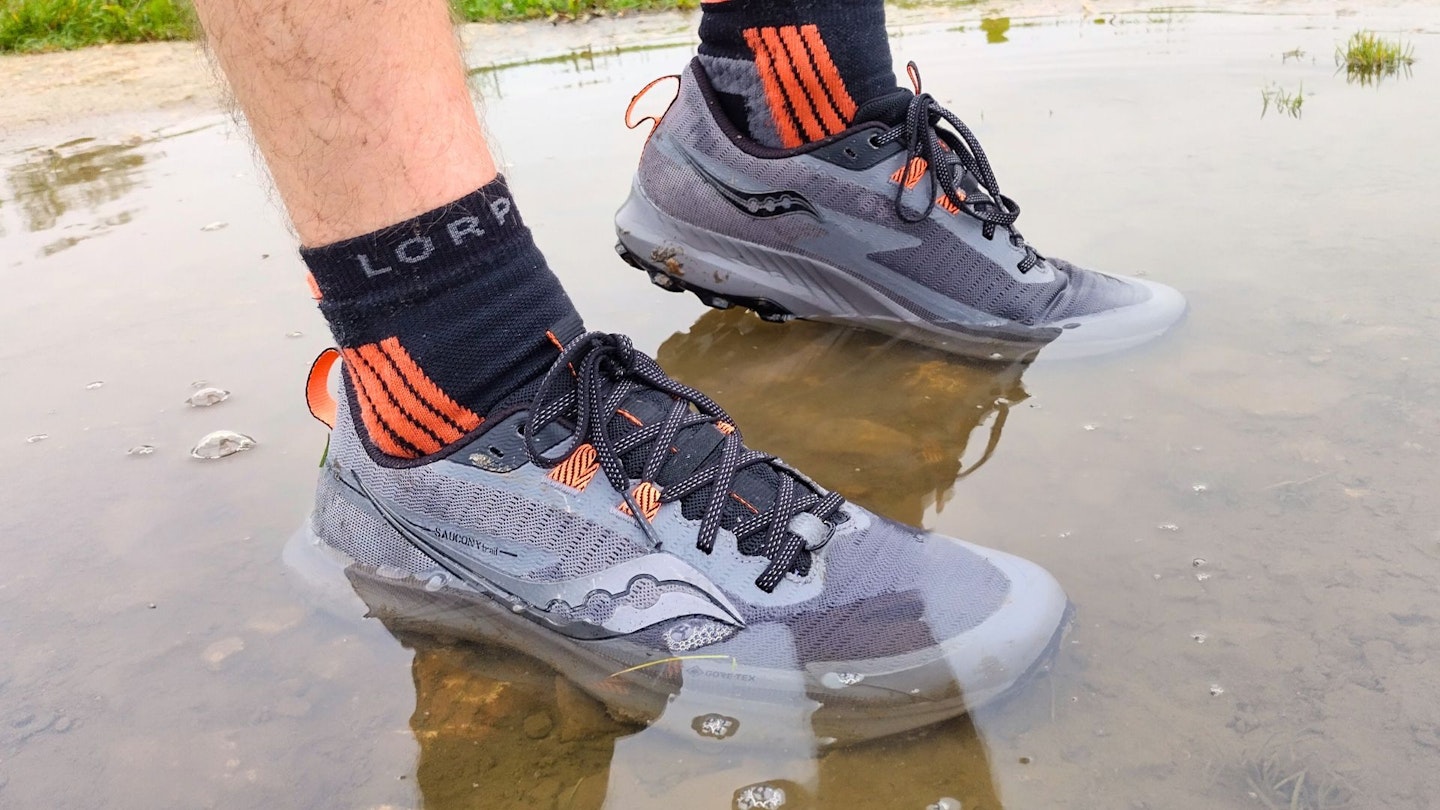
Are waterproof trail running shoes worth it?
The most common criticism of waterproof trail running shoes is that rather than keeping moisture out, they trap it in. This point is a bit fatuous because all waterproof footwear (even burly hiking boots) will let moisture in if submerged above the tongue gusset and cuff.
If you're using waterproof trail running shoes through shallow puddles and wet grass, they perform very well. But if you're going somewhere that's boggy with deep puddles, they will let moisture in. However, pair them with gaiters, and you're good to go.
Are waterproof trail running shoes breathable?
Waterproof trail running shoes are breathble but not, nor ever likely to be, as breathable as non-waterproof ones.
Although waterproof, they are still breathable because the added waterproof lining is porous. It lets the tiny moisture vapour pass through but blocks the larger water droplets.
What other features should you look for?
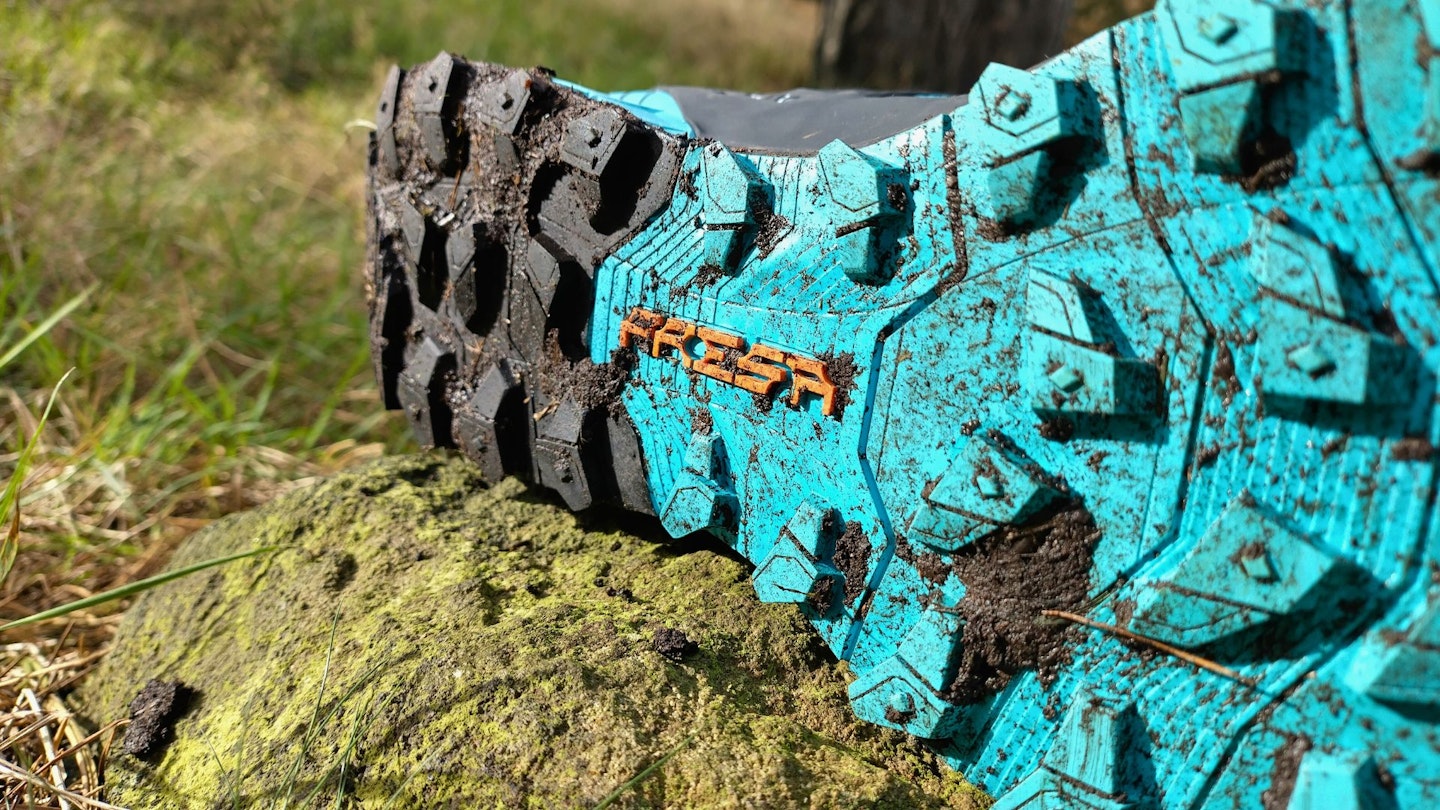
Cushioning: The jury is out on this one. Some may prefer softer rides (Hoka tend to top that chart), while others opt for a firmer under foot feel. It’s your call, although muddier runs do tend to lend themselves to firmer rides.
Drop: Drop refers to the height difference between the heel and forefoot of the shoe. The closer you get to a zero drop (0mm), the closer the shoe is to a barefoot style of running.
Shoes with a low drop (under 6mm) suit runners who strike the ground with the forefoot or midfoot first. Shoes with a larger drop suit heel-strikers better.
Grip: Lug patterns vary to suit different terrain. Shallower, more closely spaced lugs suit hard-packed terrain better because they provide more surface area contact. Those that excel on soft ground and mud have deeper, more widely spaced lugs.
Lacing systems: Traditional tends to be favourite, but BOA and Salomon Quicklace-style systems are easier to use in really wet conditions if your shoes need adjusting enroute.
Fit: Shoes have different shapes and therefore suit different feet. Some brands make narrower or wider shoes than others - some models come with regular and wide fits.
What you want is a secure fit around the heel and good width in the forefoot. Feet swell a bit when running and walking so you need to allow about a thumb's width of space at the toe and be able to get a finger down each side of your Achilles tendon.
Waterproof trail running shoe care and cleaning
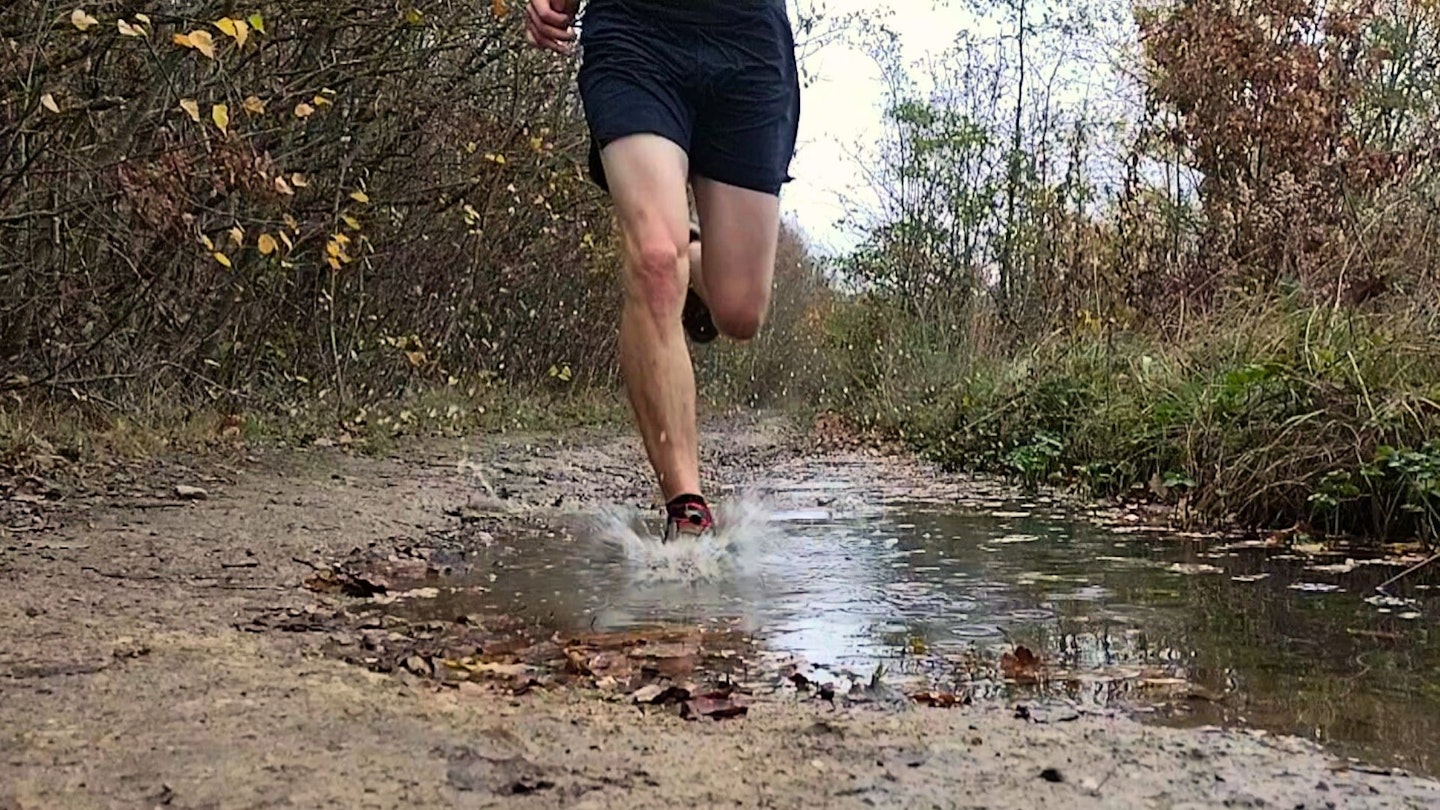
All outdoor footwear needs cared for if you want them to perform as well as they can for as long as they can. This is particularly true of waterproof outdoor footwear because in order for the waterproof lining to remain waterproof and breathable, it needs to be cleaned on a semi-regular basis.
This is very easy to do. All that's required is a couple of footwear cleaning products (see what we recommend below). One for cleaning the footwear fabric, the other for rejuvenating the water repellency.
Best footwear cleaner
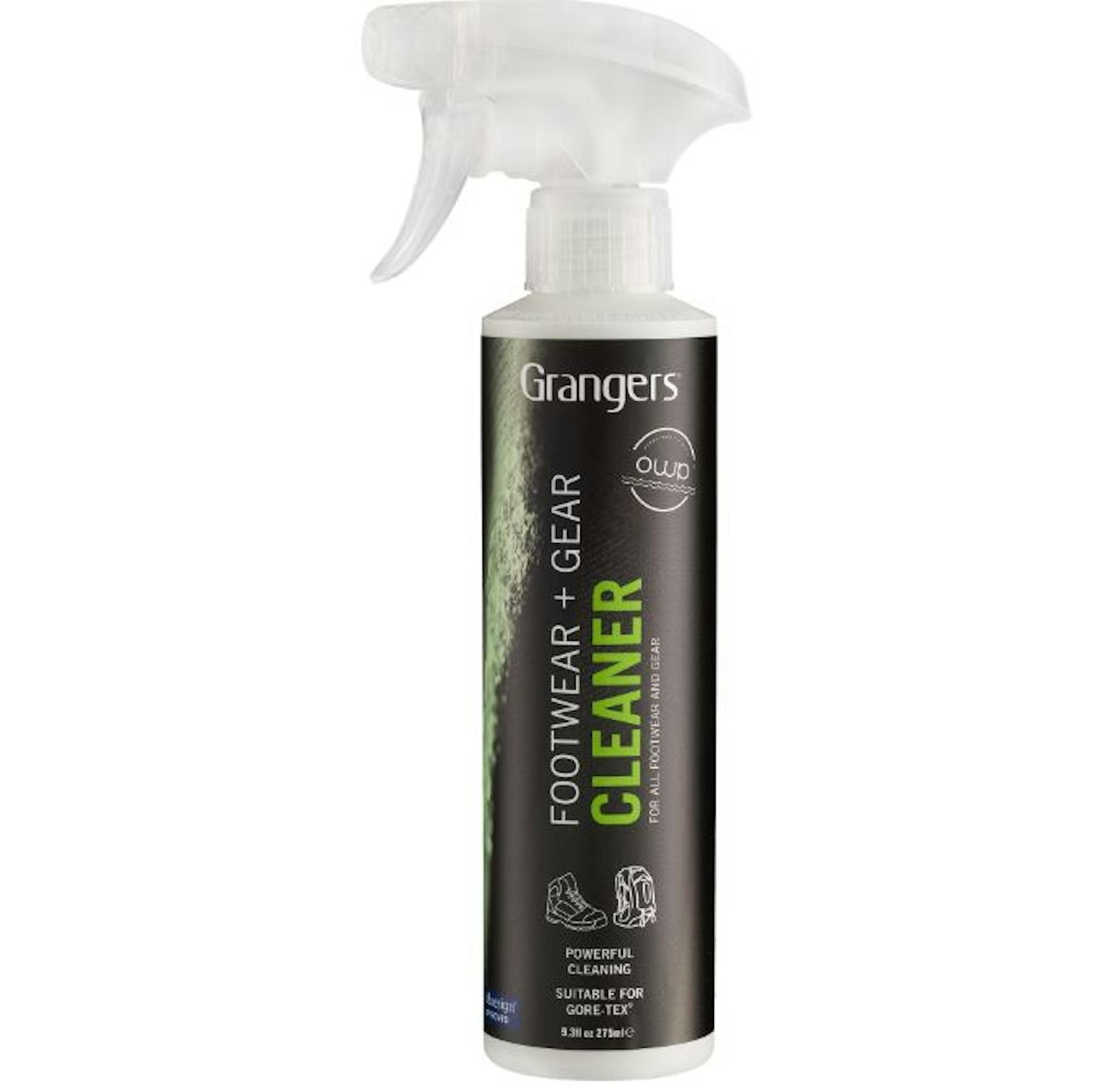
Eco-friendly, PFC-free footwear and gear spray-on spot cleaner. It's versatile and can be used on almost all your gear, for those smaller stains and marks.
Pros
- Effective
- Eco-friendly
- Easy to use
Cons
- Can go through it quite quickly
Best footwear reproofer
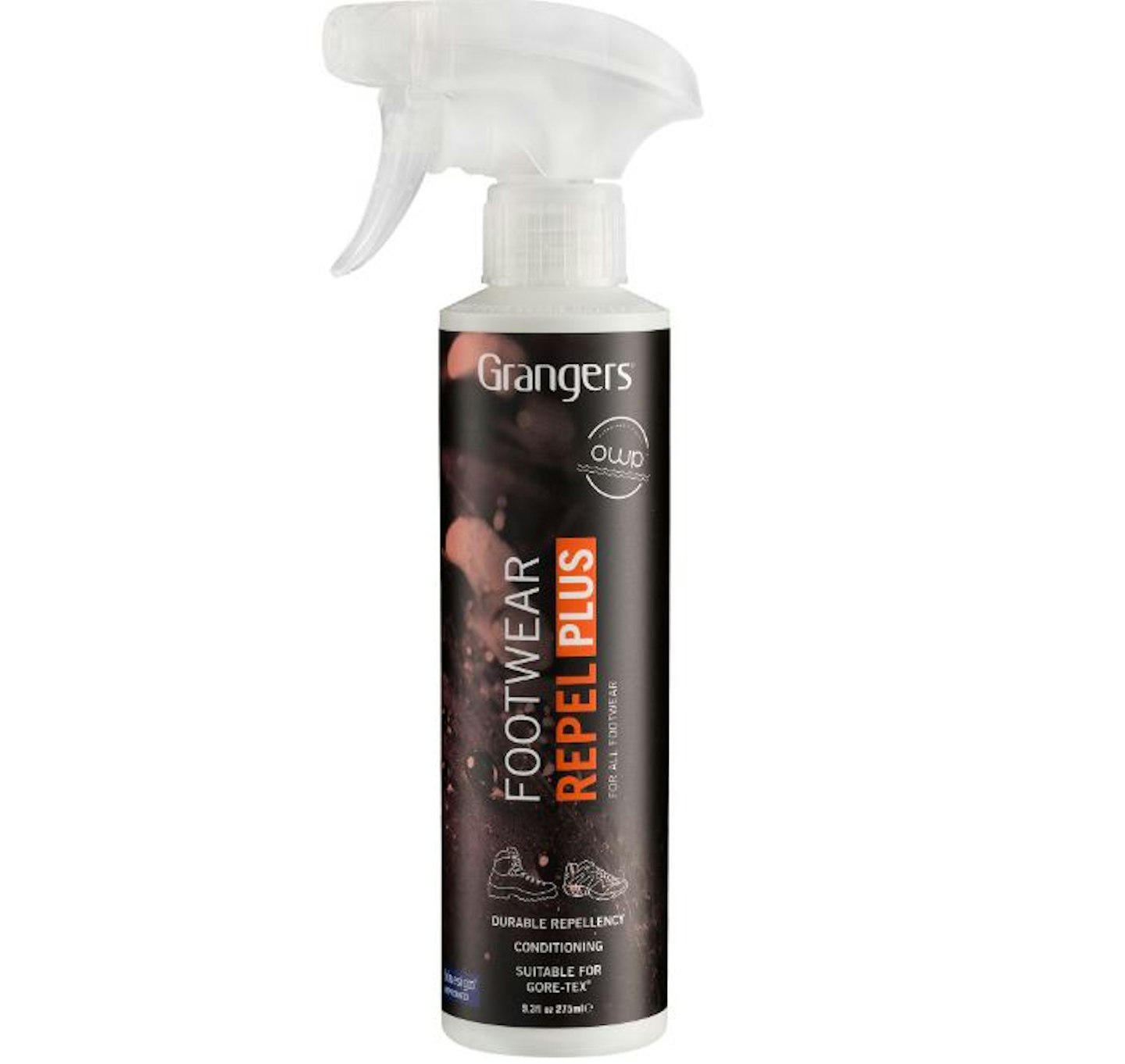
Eco-friendly, PFC-free footwear spray-on reproofer. The Footwear Repel Plus from Grangers is our pick for a cleaning spray that can cover a wide range of fabrics and membranes, including Gore-Tex.
Pros
- Effective
- Eco-friendly
- Easy to use
Cons
- Can go through it quite quickly
Best footwear care kit
Leather and fabric footwear care kit including brush and dry bag. The sustainability credentials on this care kit are great, and the included dry bag becomes a big help on multi-day hikes or camping trips.
Pros
- Full footwear cleaning kit even for leather
- Eco friendly
- Dry bag
Cons
- Can go through the sprays quite quickly
About the author
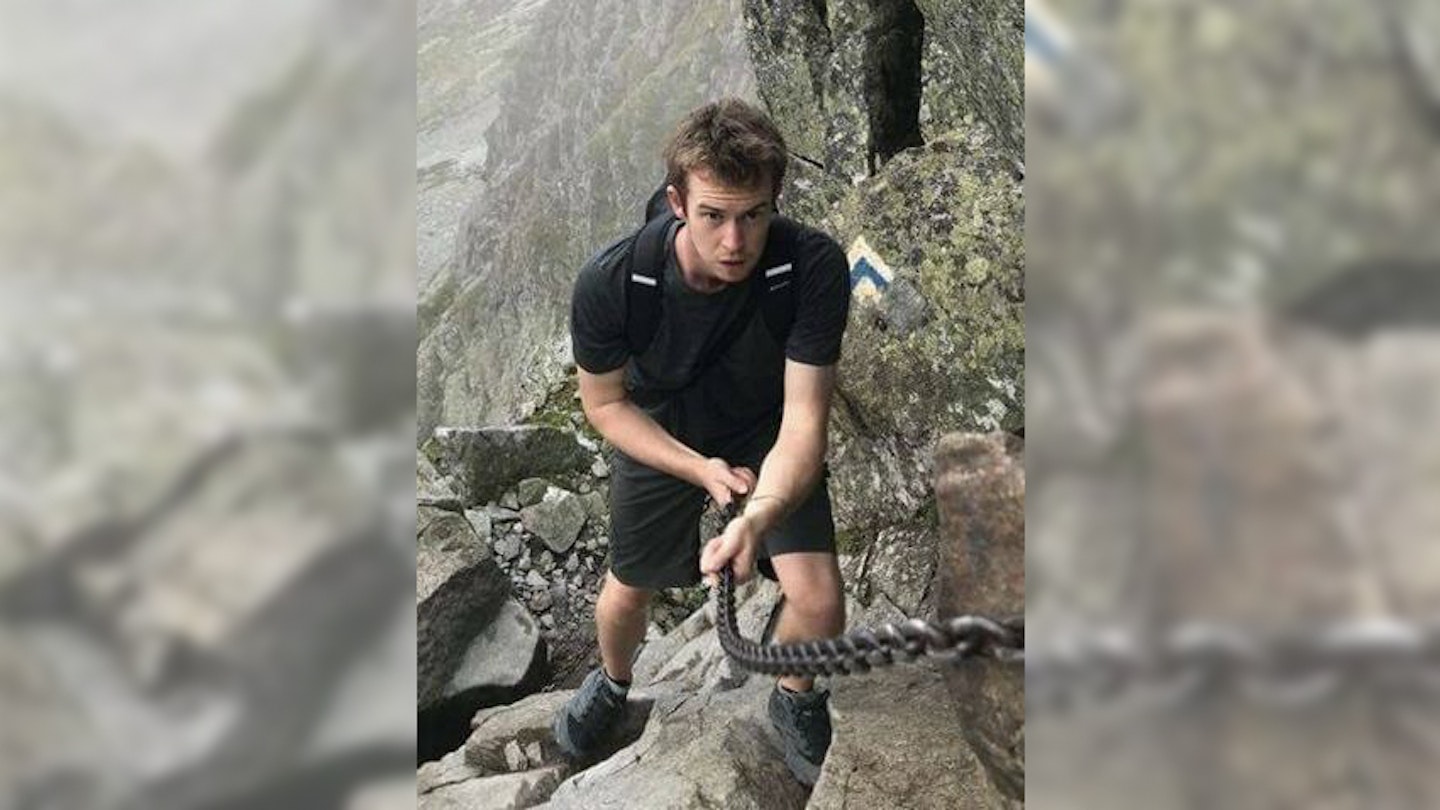
Chris Williams is our Senior Writer. He trained as a journalist in New Zealand and has been working for LFTO since 2021. Chris spent his childhood doing almost every outdoor sport under the sun. Eventually, those he pursued into his adult years were hiking, trail running, mountain biking and water skiing.
He began writing professionally after university, training at New Zealand’s Otago Daily Times newspaper. Curiously, it was for the motoring section. However, Chris also worked for New Zealand’s leading outdoor gear brand, and after spending a couple of years doing automotive writing, he changed to outdoor and thus joined Live For The Outdoors.

